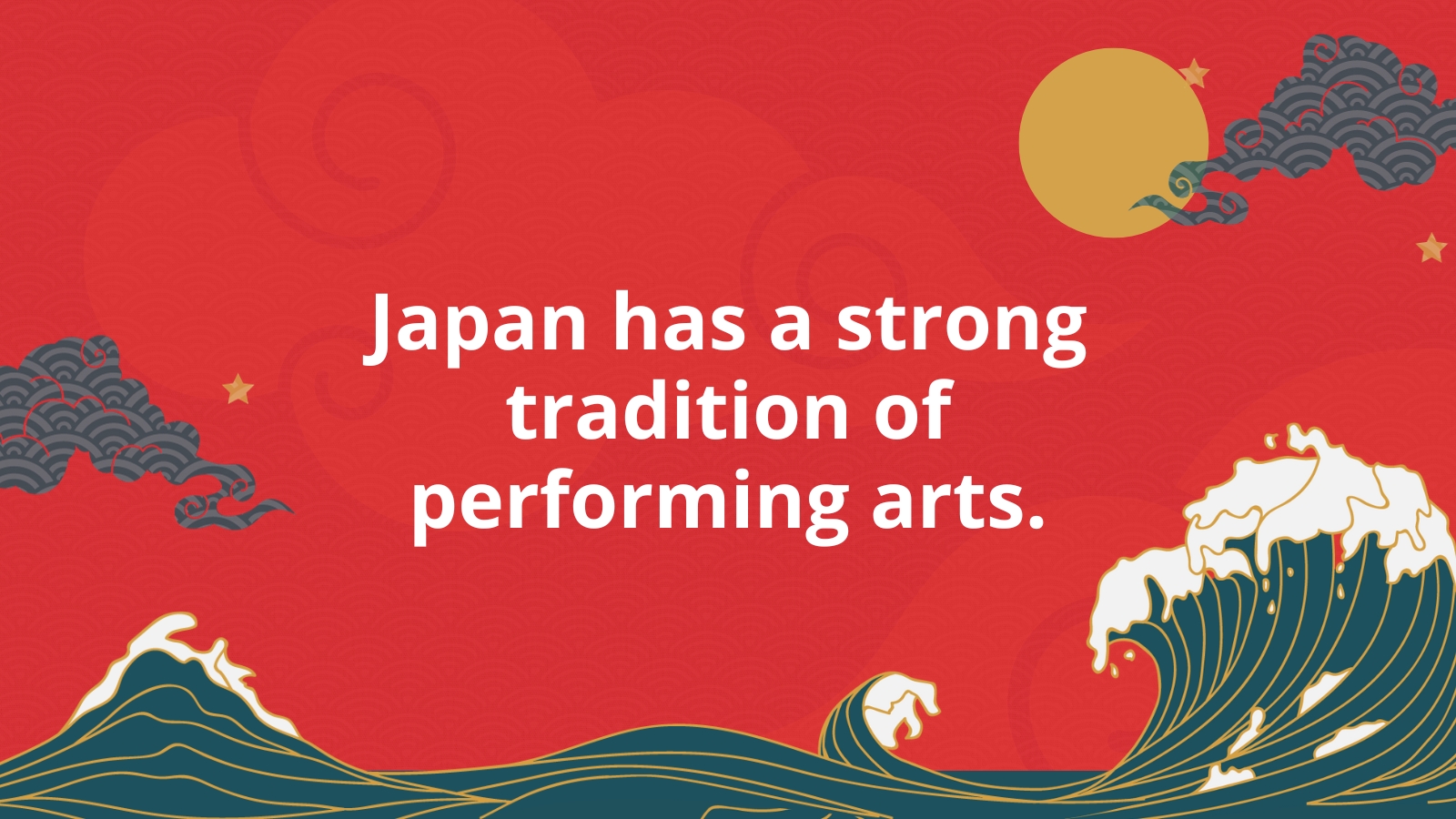Japan is one of the most visited countries in the world. With soaring mountains, picturesque beaches, and vibrant cities, the country has a lot to offer. Ready to learn more? Here are some fun facts about Japan that might surprise you!
Geographical Facts About Japan
Japan is an island nation.
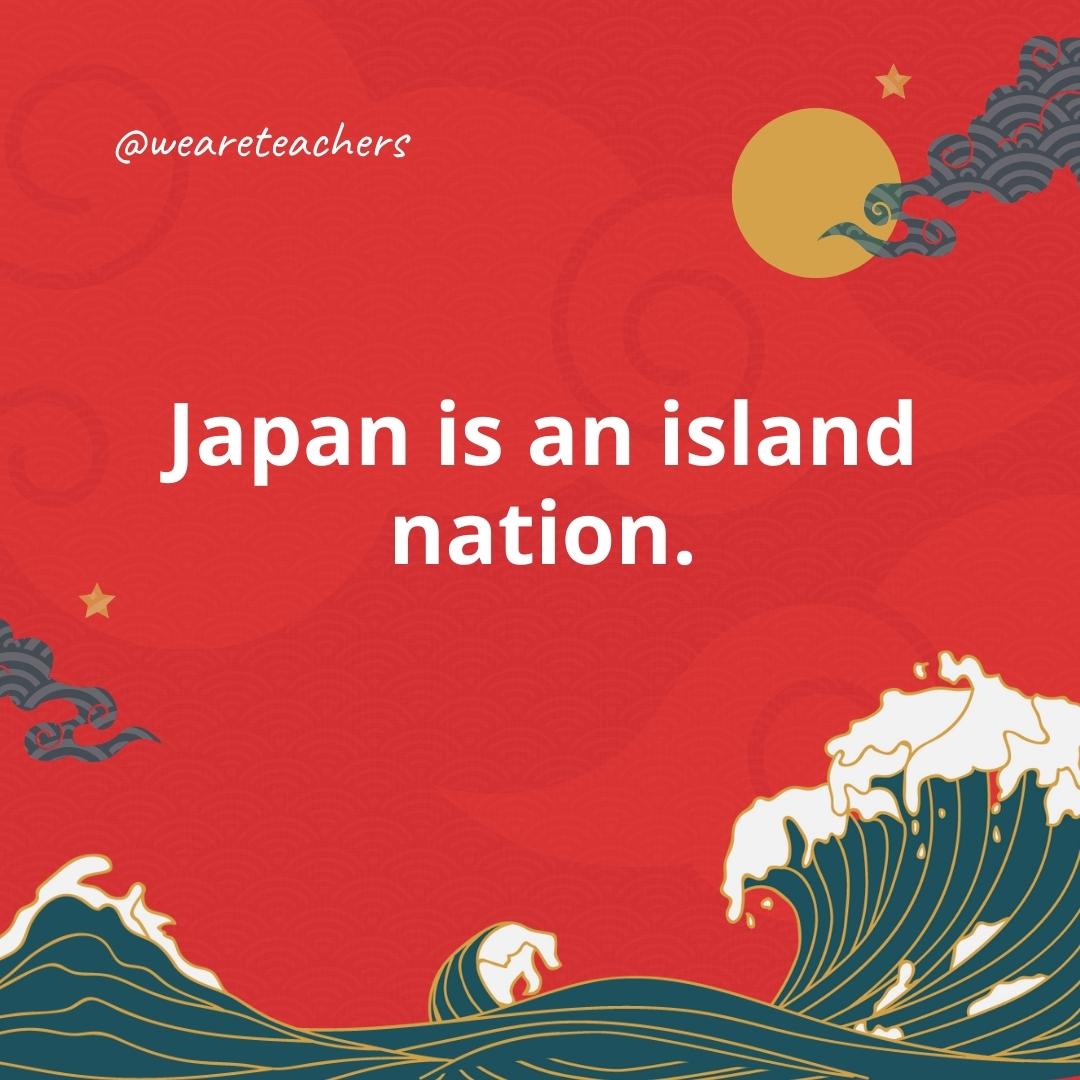
Japan lies off the east coast of Asia and “consists of a great string of islands in a northeast-southwest arc that stretches for approximately 1,500 miles (2,400 km) through the western North Pacific Ocean.”
Japan’s capital, Tokyo, is the largest city in the world.
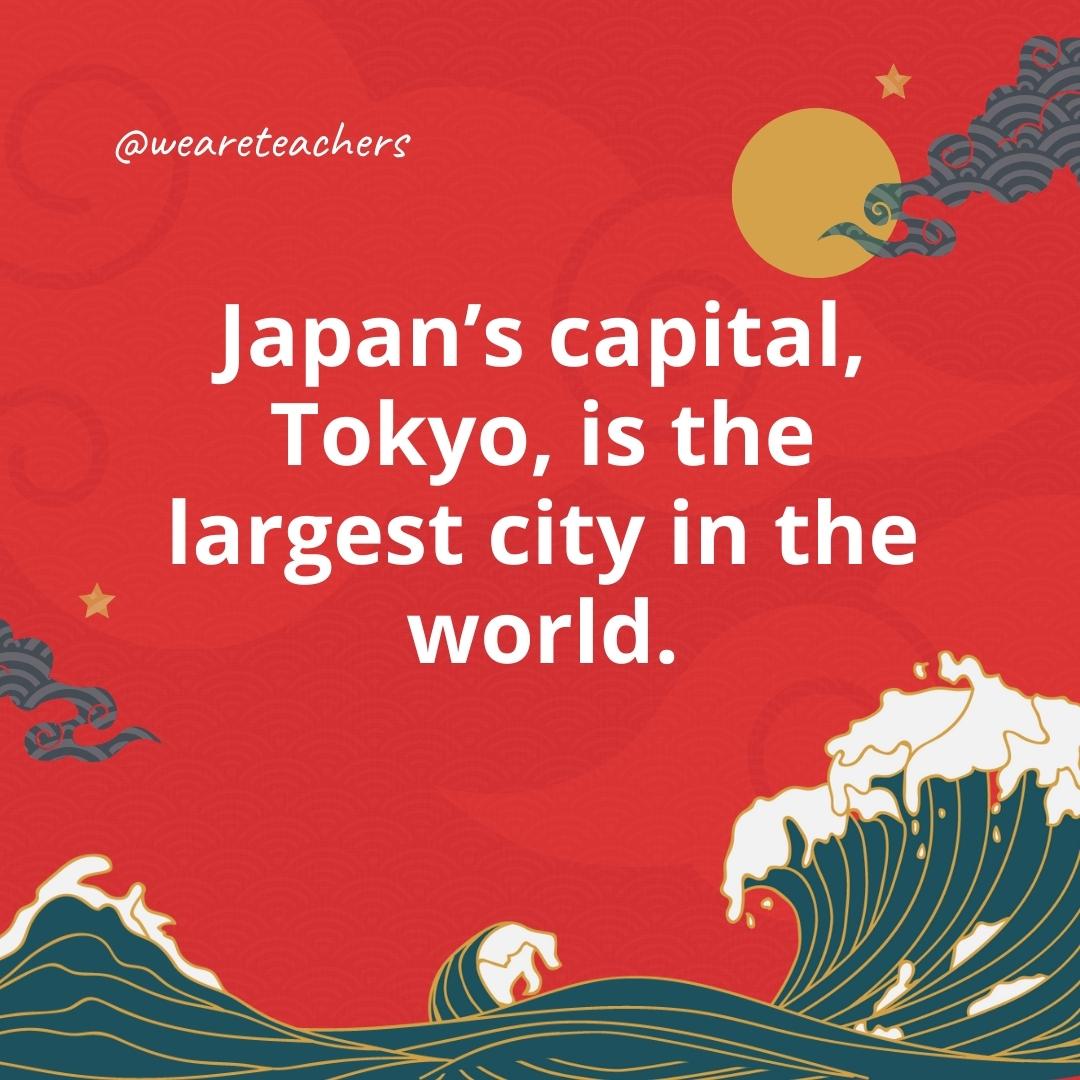
Japan’s capital city is home to 37.4 million people—which is four times more than New York City!
Japan consists of over 6,800 islands.
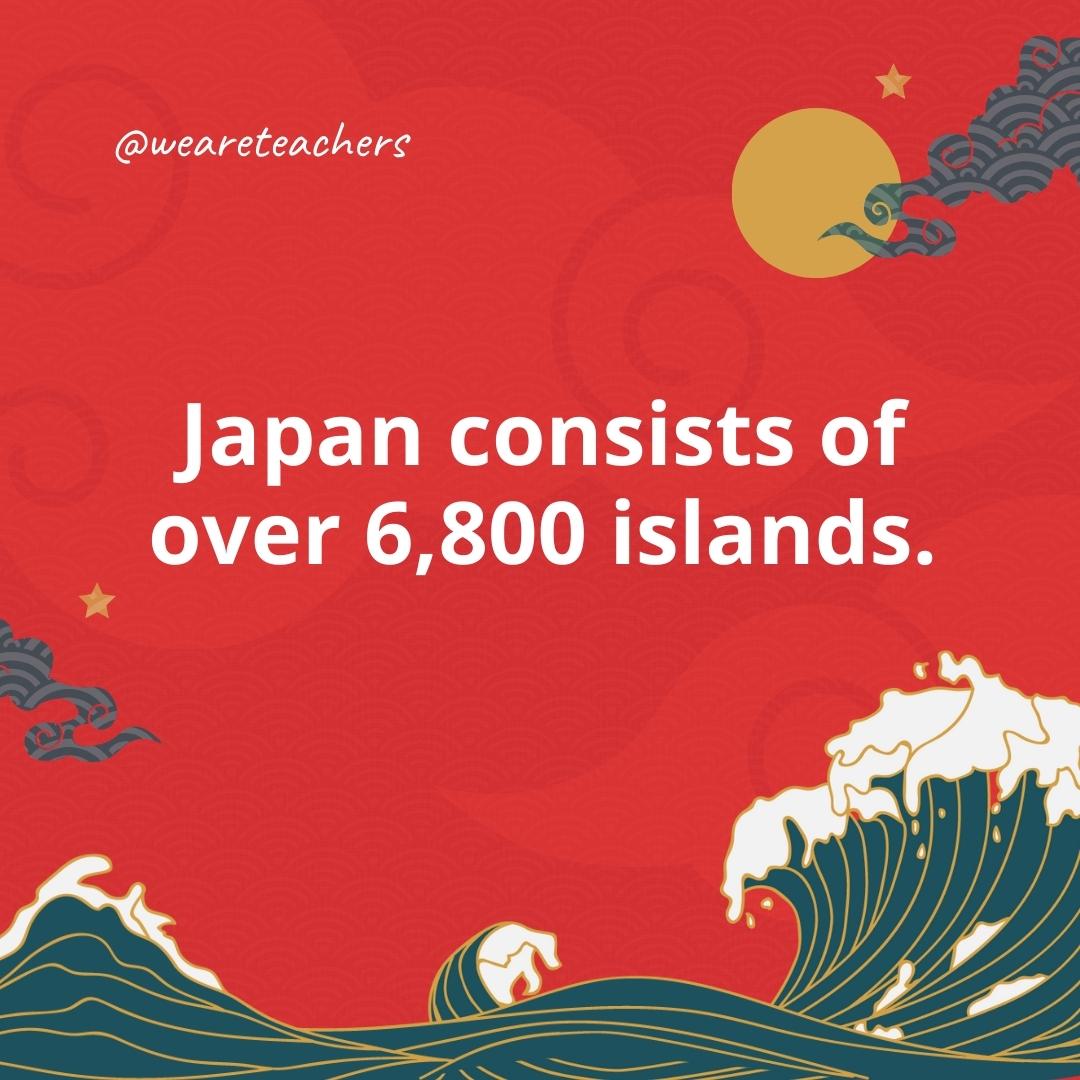
The largest of which are Honshu (where all the major cities are located!), Hokkaido, Kyushu, and Shikoku.
Mount Fuji is the country’s highest peak.

The iconic symbol of Japan, which the Japanese refer to as “Fujisan,” stands at 3,776 meters (12,389 feet) tall. For more facts about Japan, check out these interesting facts about Mount Fuji!
Kyoto was the capital of Japan for over a millennium.

It is famous for its numerous classical Shinto shrines, Buddhist temples, gardens, imperial palaces, and traditional wooden houses. Its history continues to be protected to this day—there’s even a restriction on bright colors in the city!
Natural disasters are common in Japan.
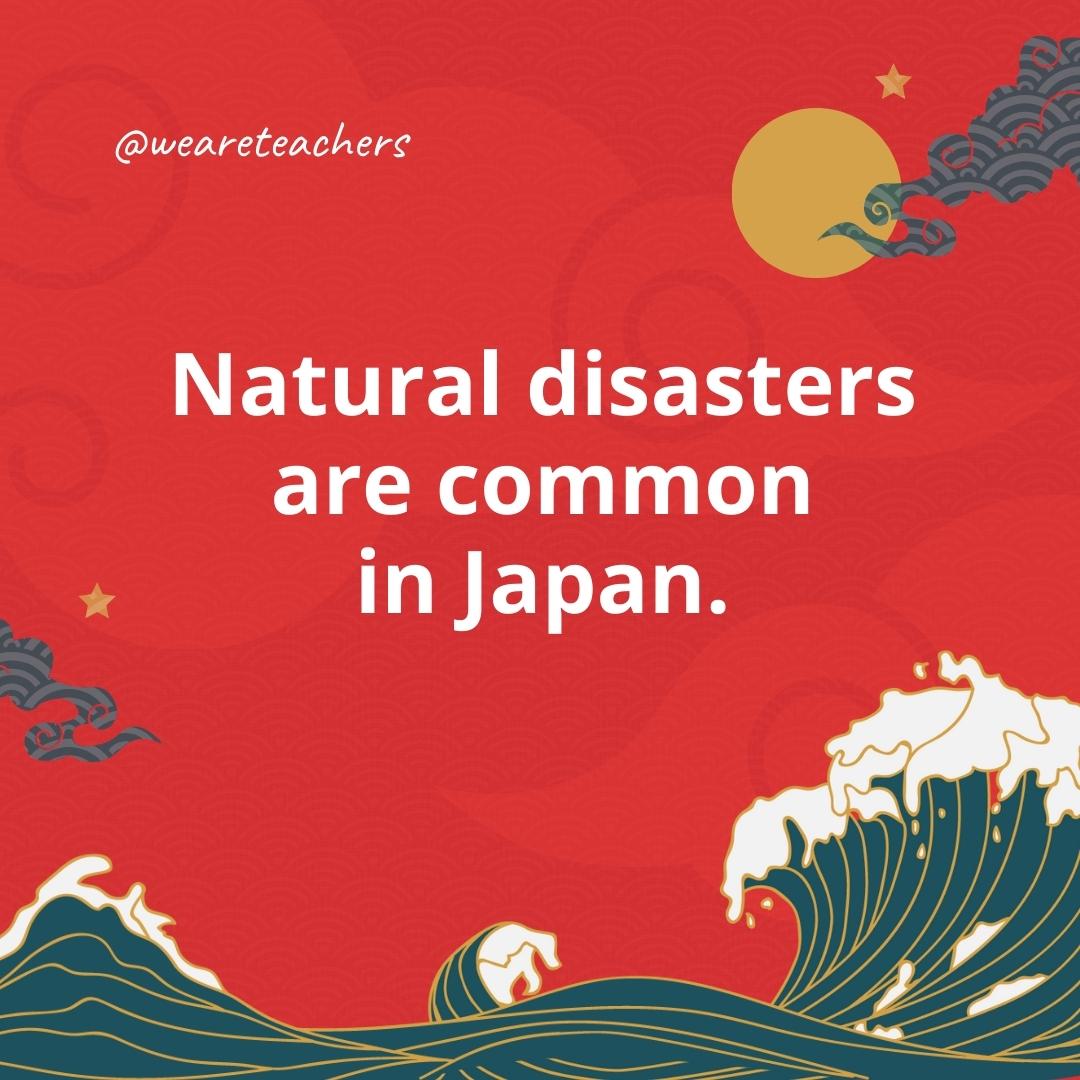
These include earthquakes, tsunamis, and typhoons, due to its geographical location on the Pacific Ring of Fire.
Japan has 110 active volcanoes.
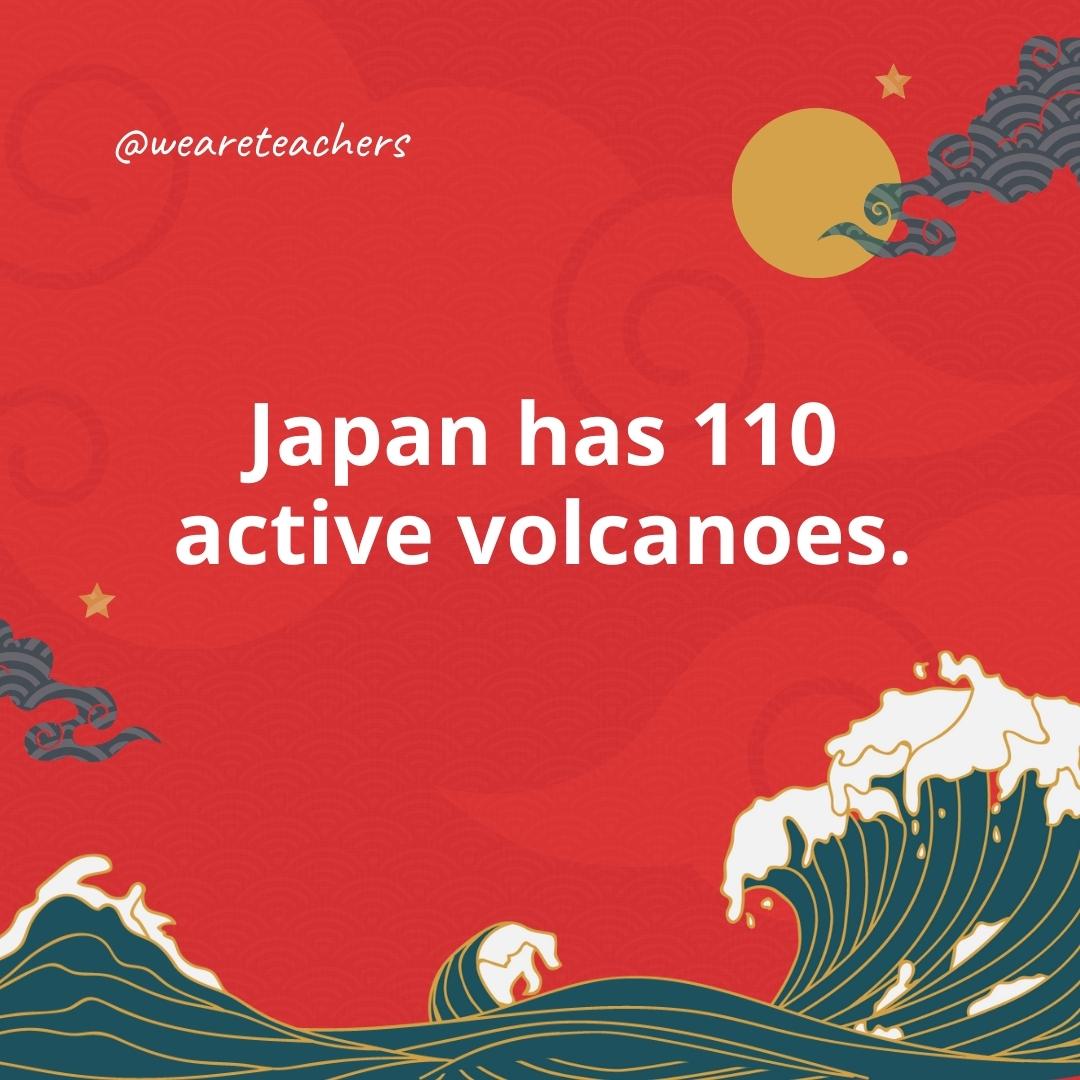
Check out this list of 25 Amazing Volcanos in Japan!
Arts & Cultural Facts About Japan
The Japanese name for Japan is “Nihon” or “Nippon.”
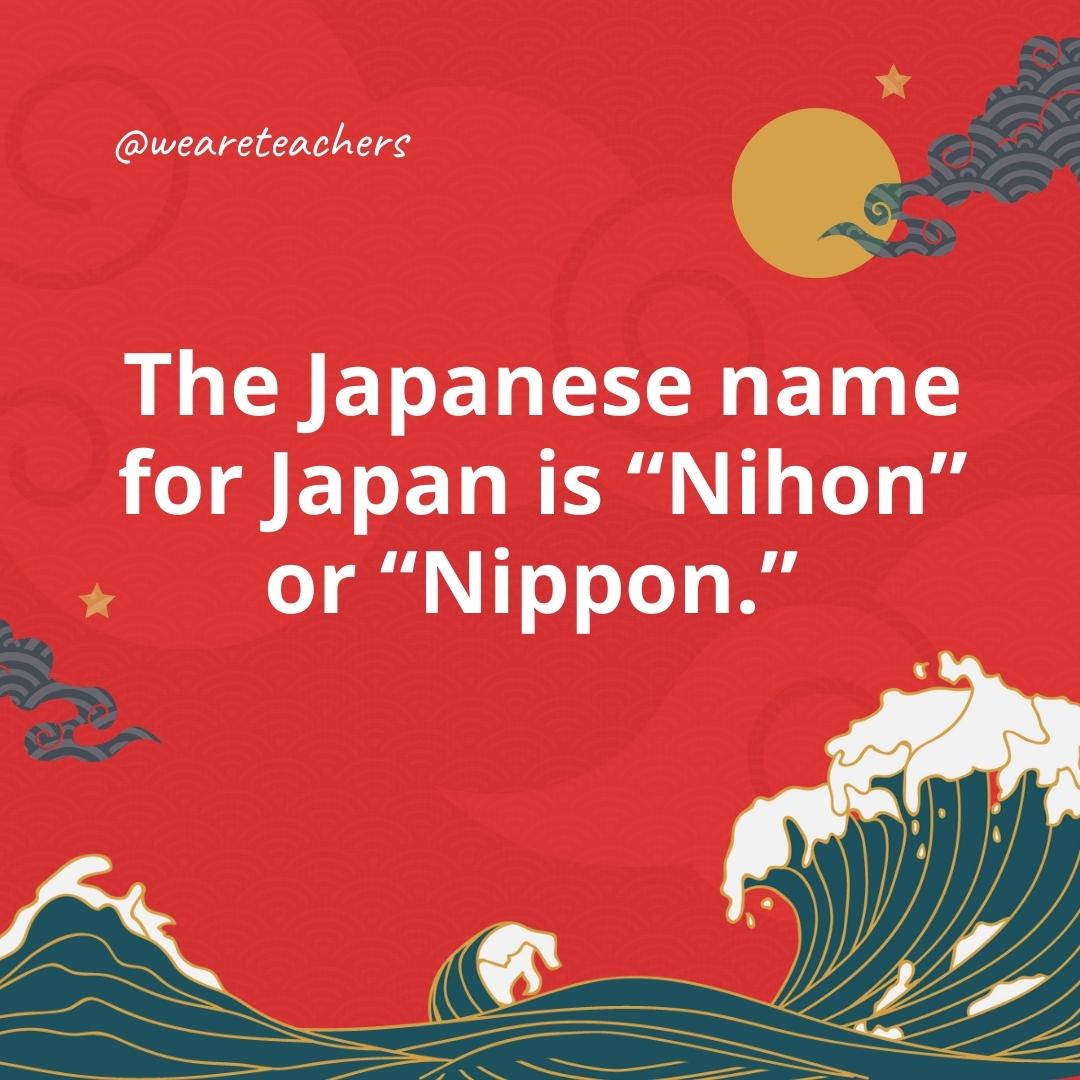
It means “where the sun rises,” referring to its location to the east of China. Both pronunciations are acceptable.
The Japanese flag symbolizes the sun.
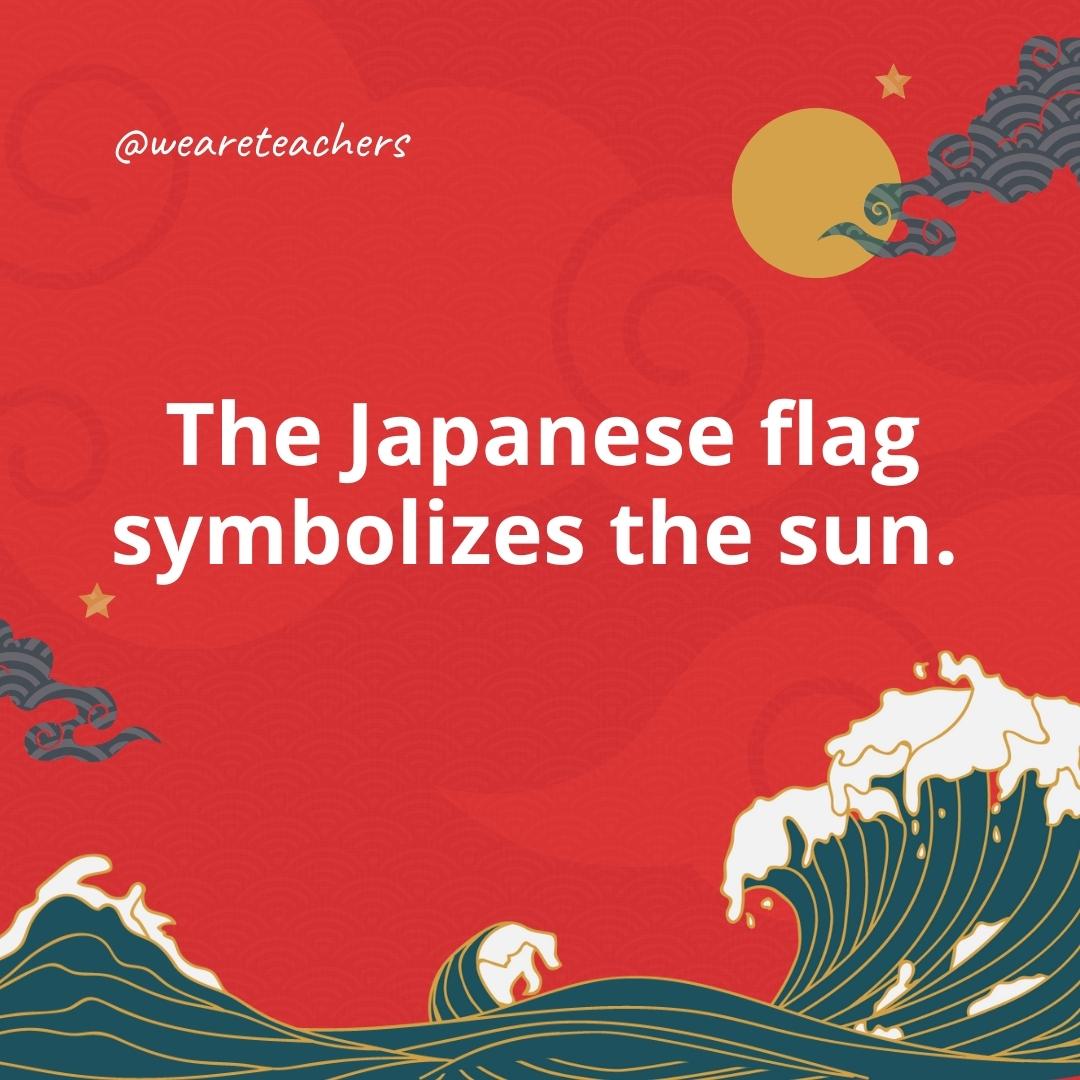
Known as the Nisshōki or Hinomaru, it consists of a red circle on a white background.
The Japanese writing system includes three scripts.

They are Hiragana, Katakana, and Kanji (derived from Chinese characters).
Cherry blossoms are deeply symbolic in Japanese culture.
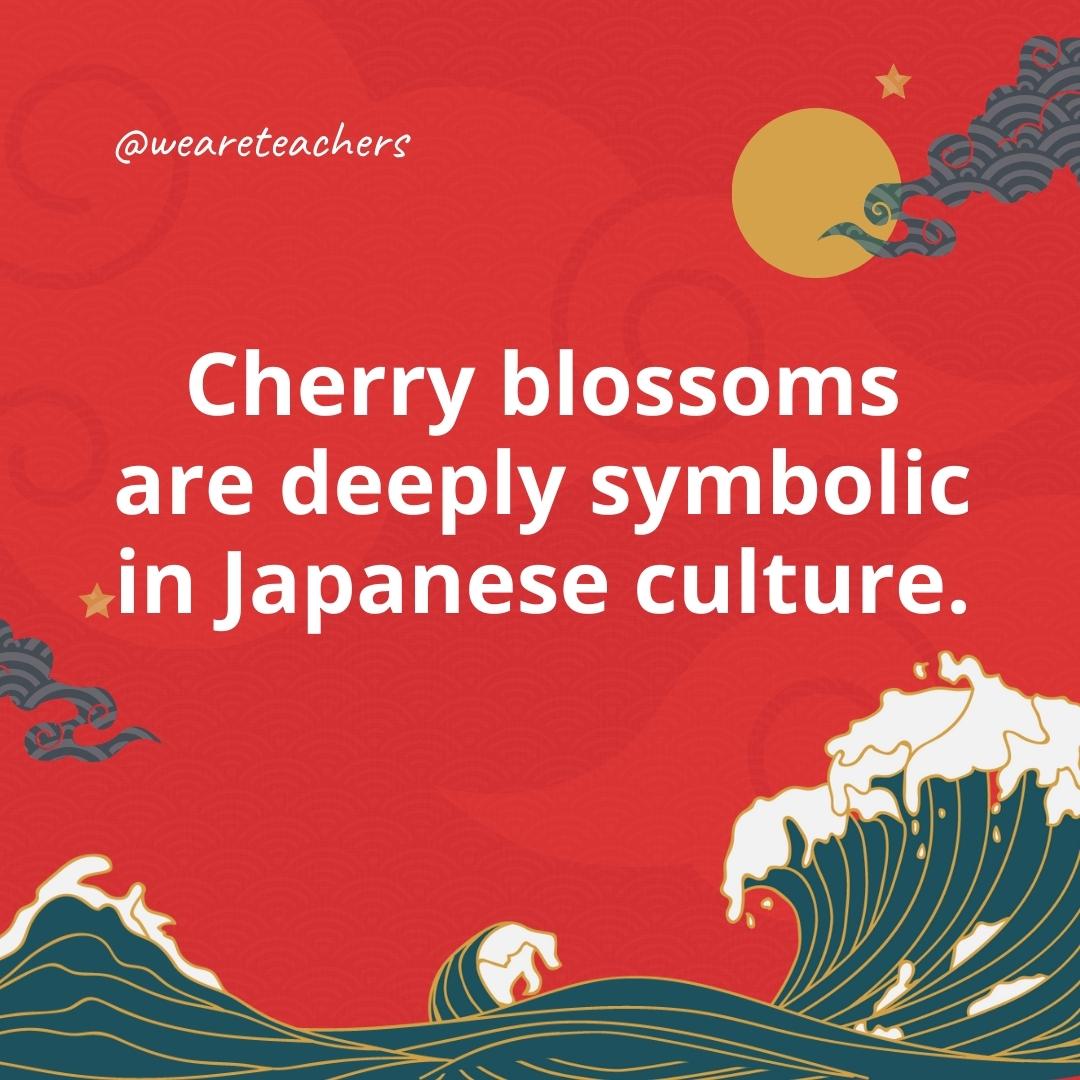
In Japanese, they are called sakura and they represent the beauty and fragility of life. Read this article to learn more about Hanami, the symbolism of the ritual of sakura viewing.
The Japanese tea ceremony lasts four hours.
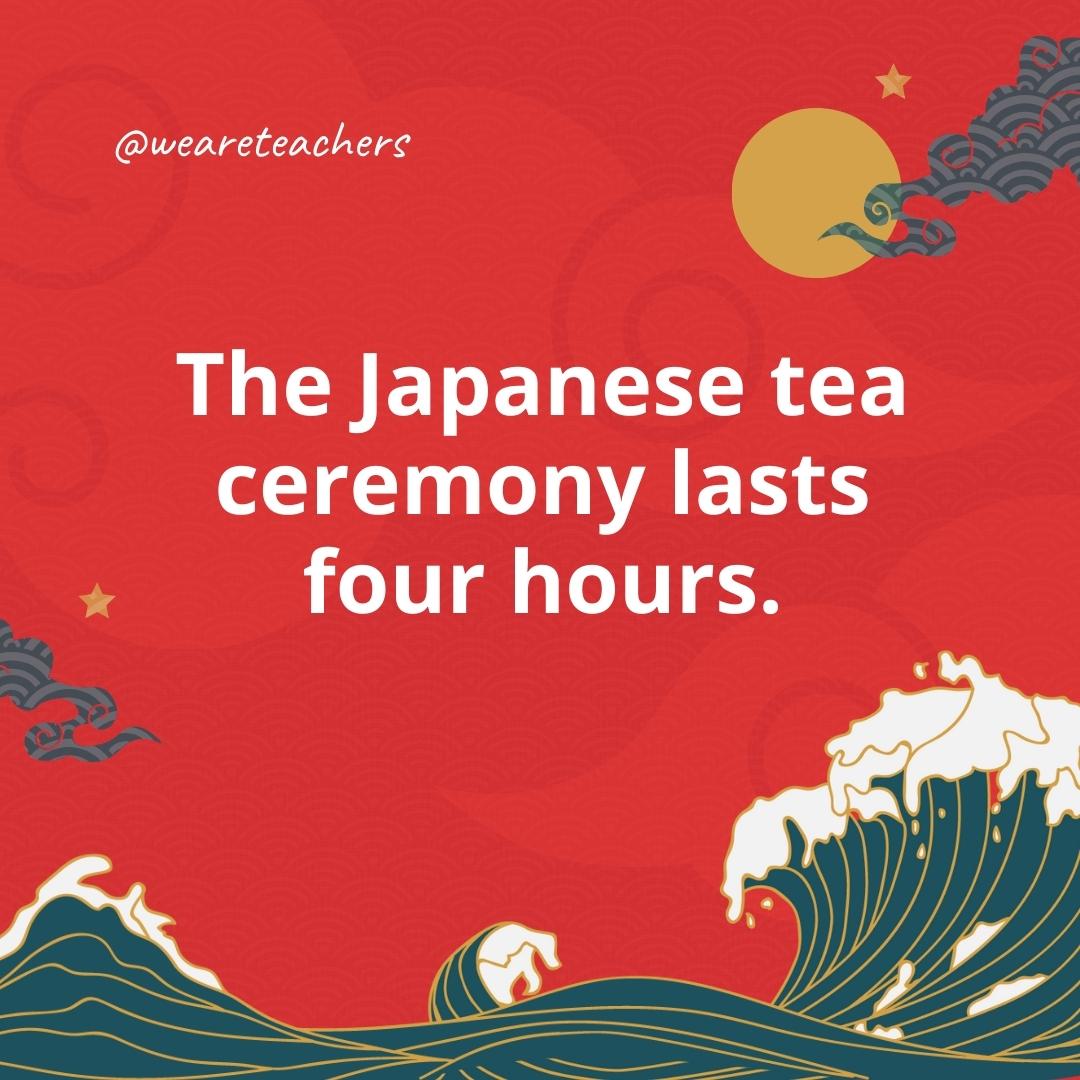
Chanoyu, as it’s known in Japanese, involves the ceremonial preparation and presentation of matcha, a powdered green tea. Learn more about what happens during the four-hour event.
Onsen are popular for relaxation and health benefits in Japan.
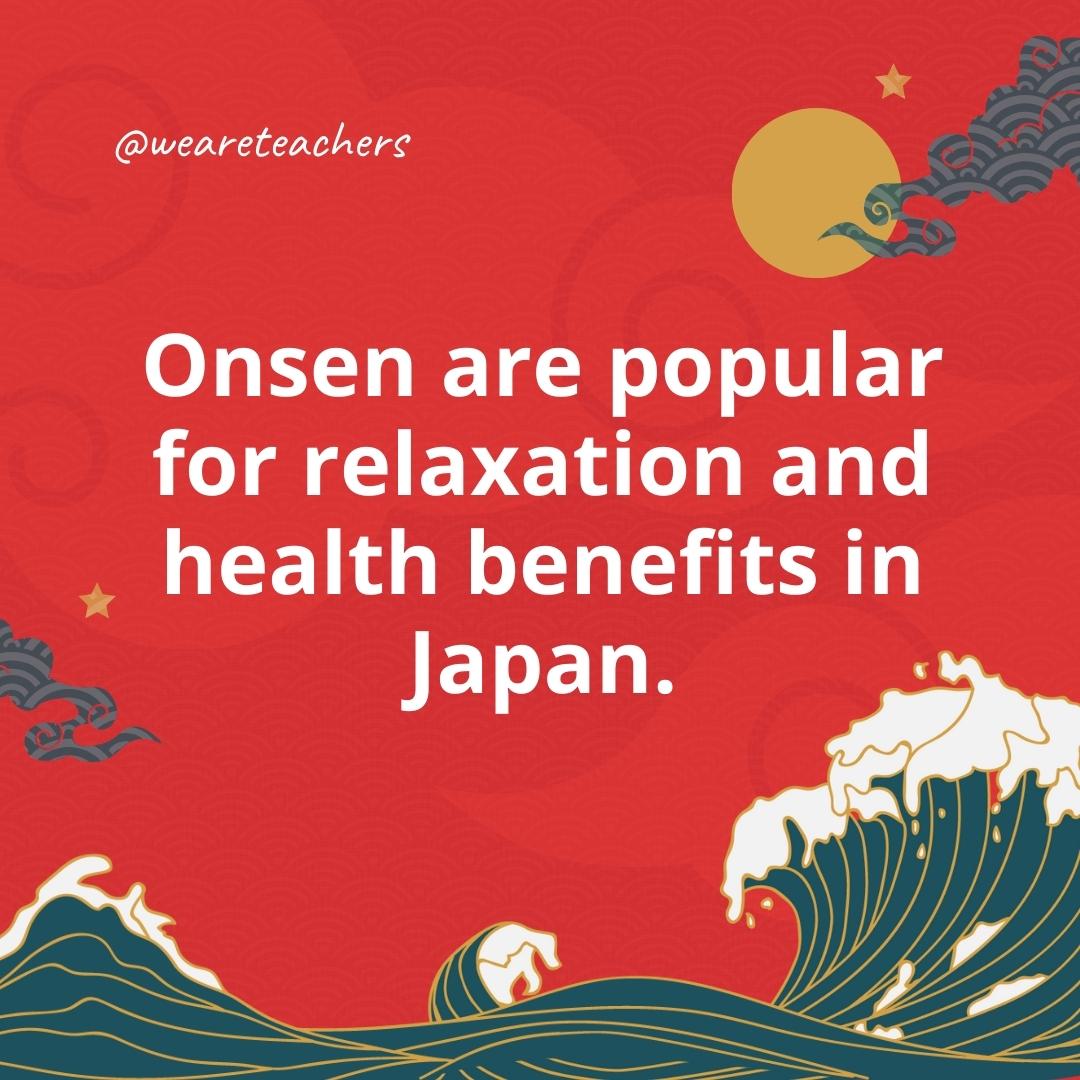
Soaking in traditional Japanese hot springs, called onsen, is pretty easy as they can be found throughout the country, even at amusement parks like Nagashima Spa Land! Learn more about the health benefits of visiting an onsen.
Japan has a strong tradition of performing arts.
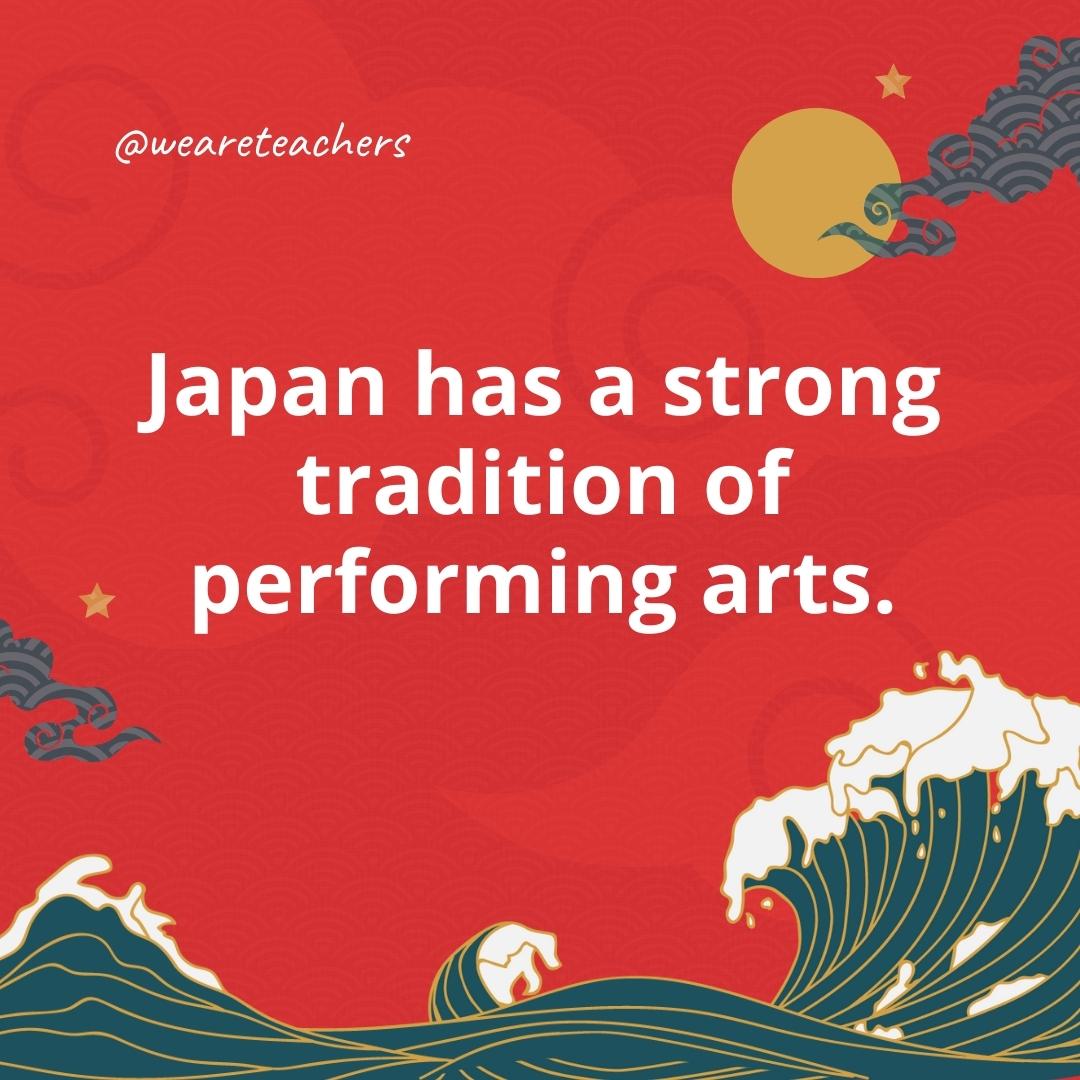
These include Noh, Kabuki, and Bunraku, which have been preserved for centuries.
The Japanese traditional dress is the kimono.

Japanese people often wear various versions, known for their elegant and intricate designs, during special occasions and festivals. Learn more about the 13 types of kimonos in Japan.
Japanese culture highly values koi fish.
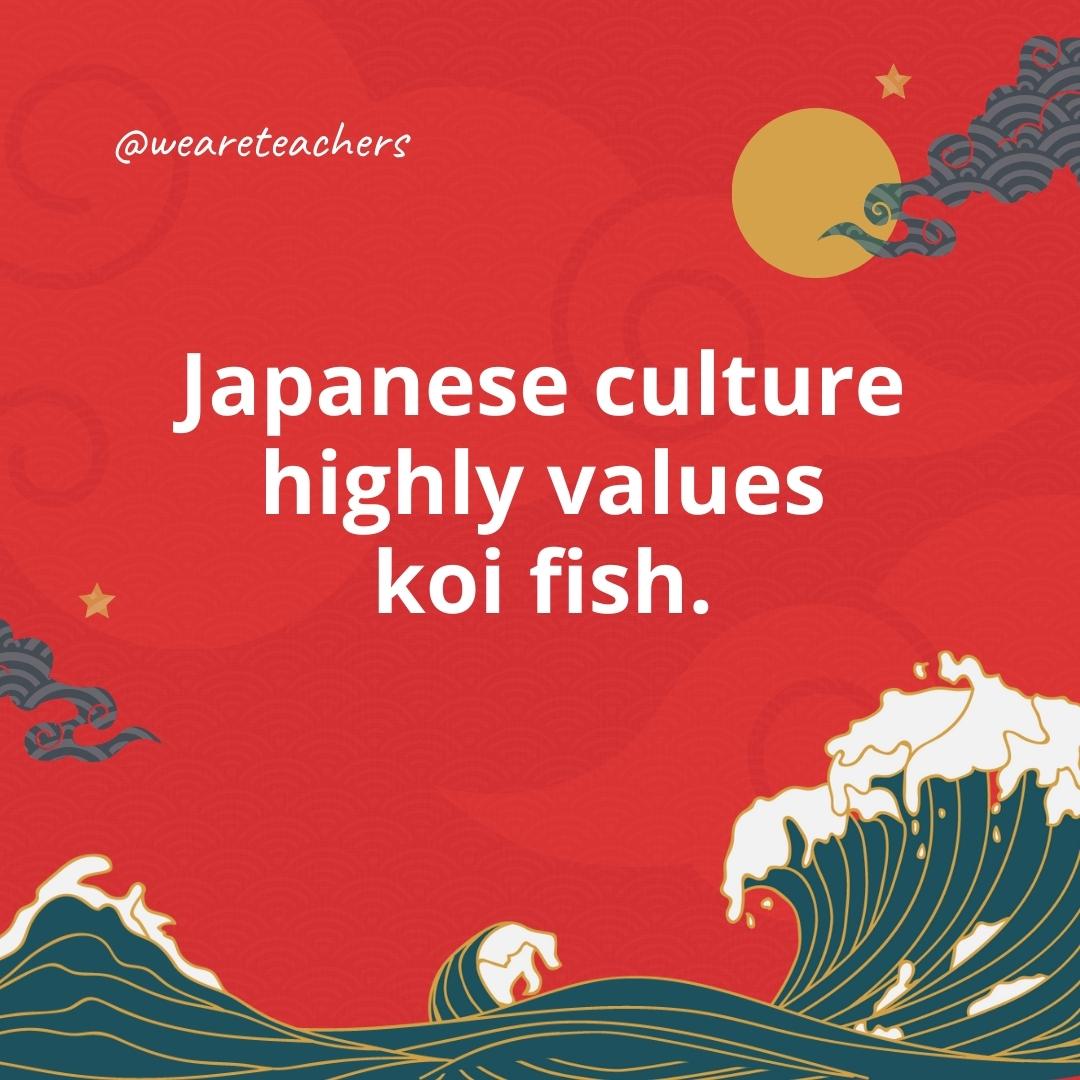
With their vibrant colors, they are often associated with good fortune, success, and perseverance.
The Great Wave off Kanagawa is one of the most recognizable works of Japanese art.
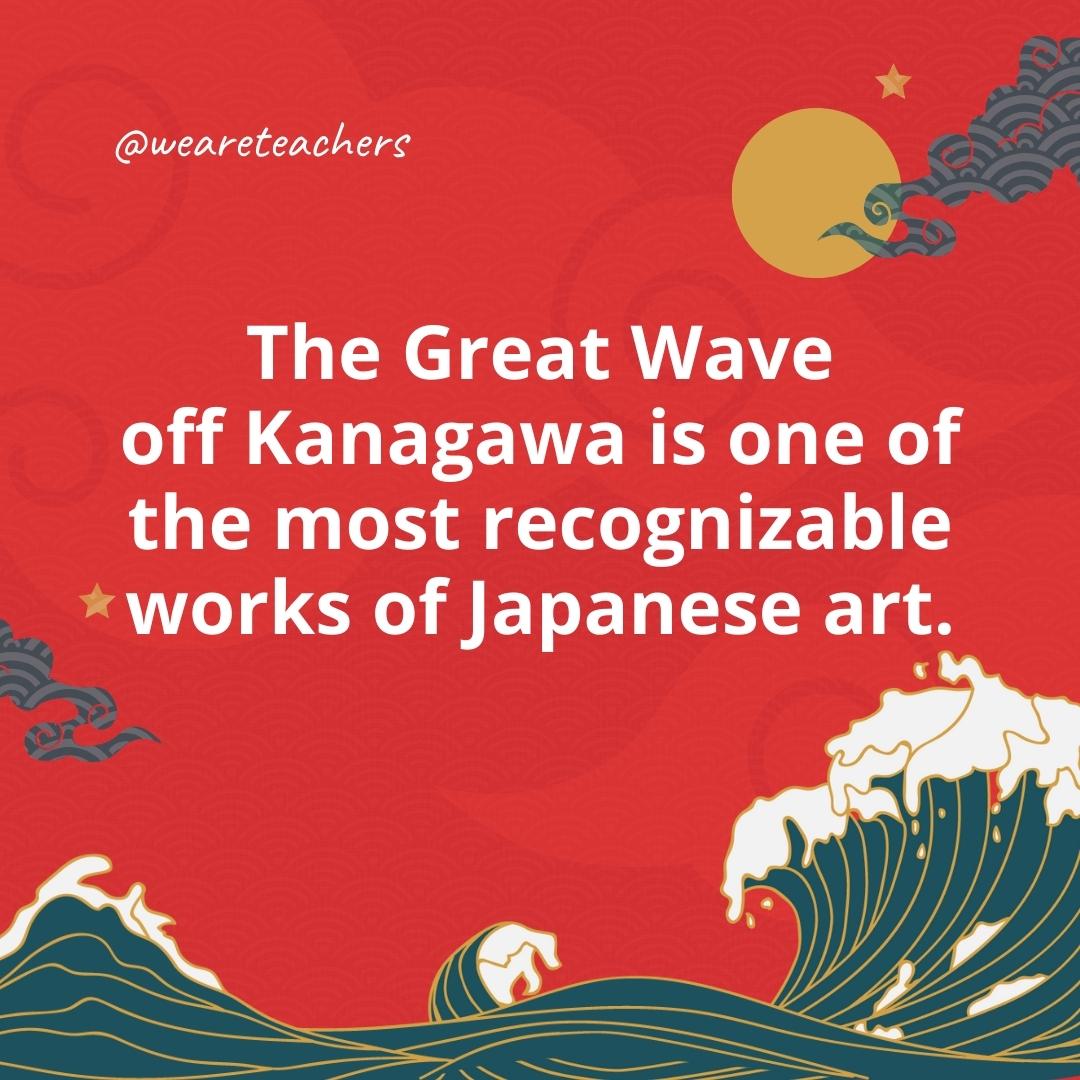
In late 1831 during the Edo period of Japanese history, Hokusai created the famous woodblock print.
Shinto and Buddhism are Japan’s two major belief systems.
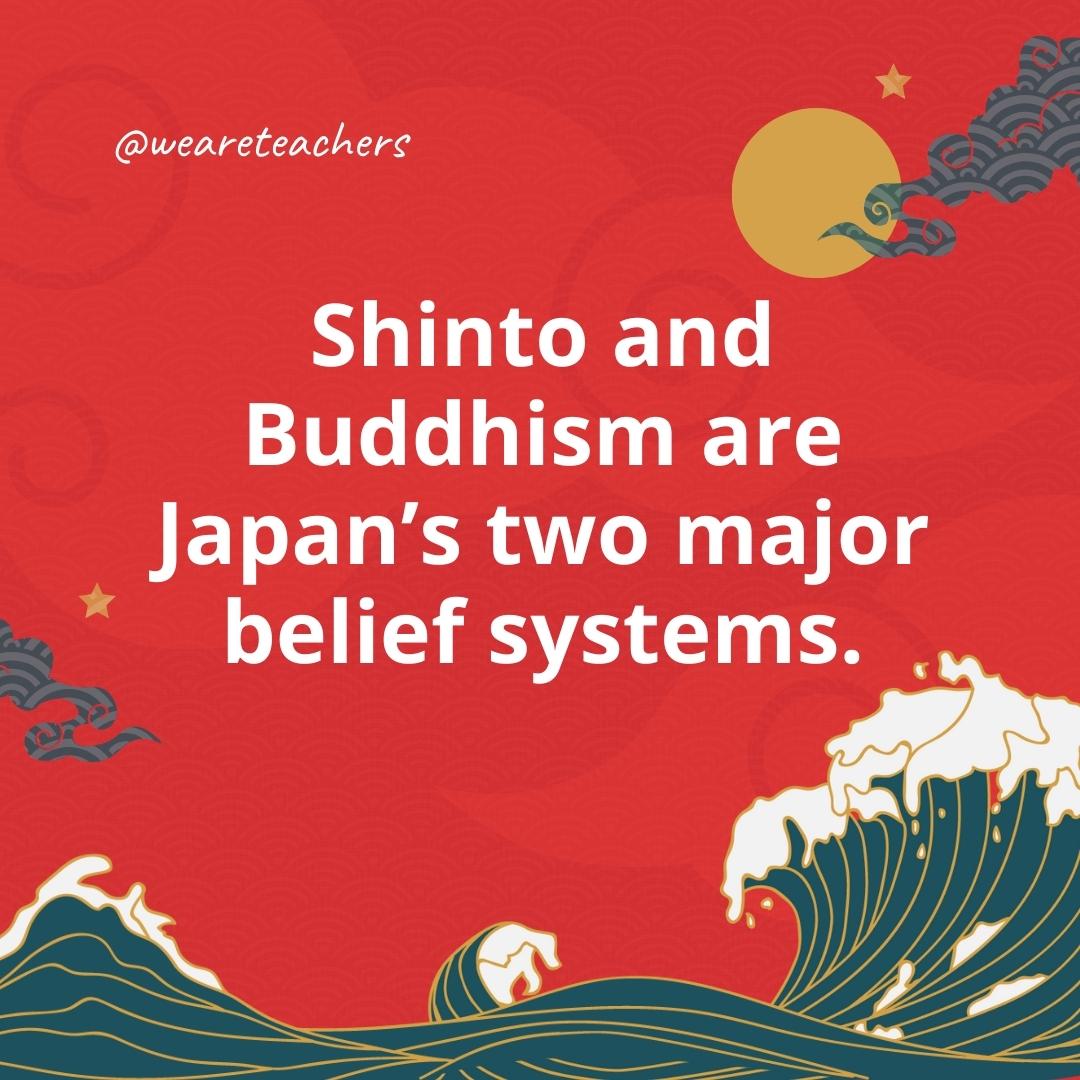
It’s very easy to find Shinto shrines and Buddhist temples in every part of Japan. There is no single dominant religion, however. Instead, multiple belief systems co-exist side by side. A greater emphasis is placed on tradition and family rites rather than following a specific faith.
Gion Matsuri is one of Japan’s most famous festivals.
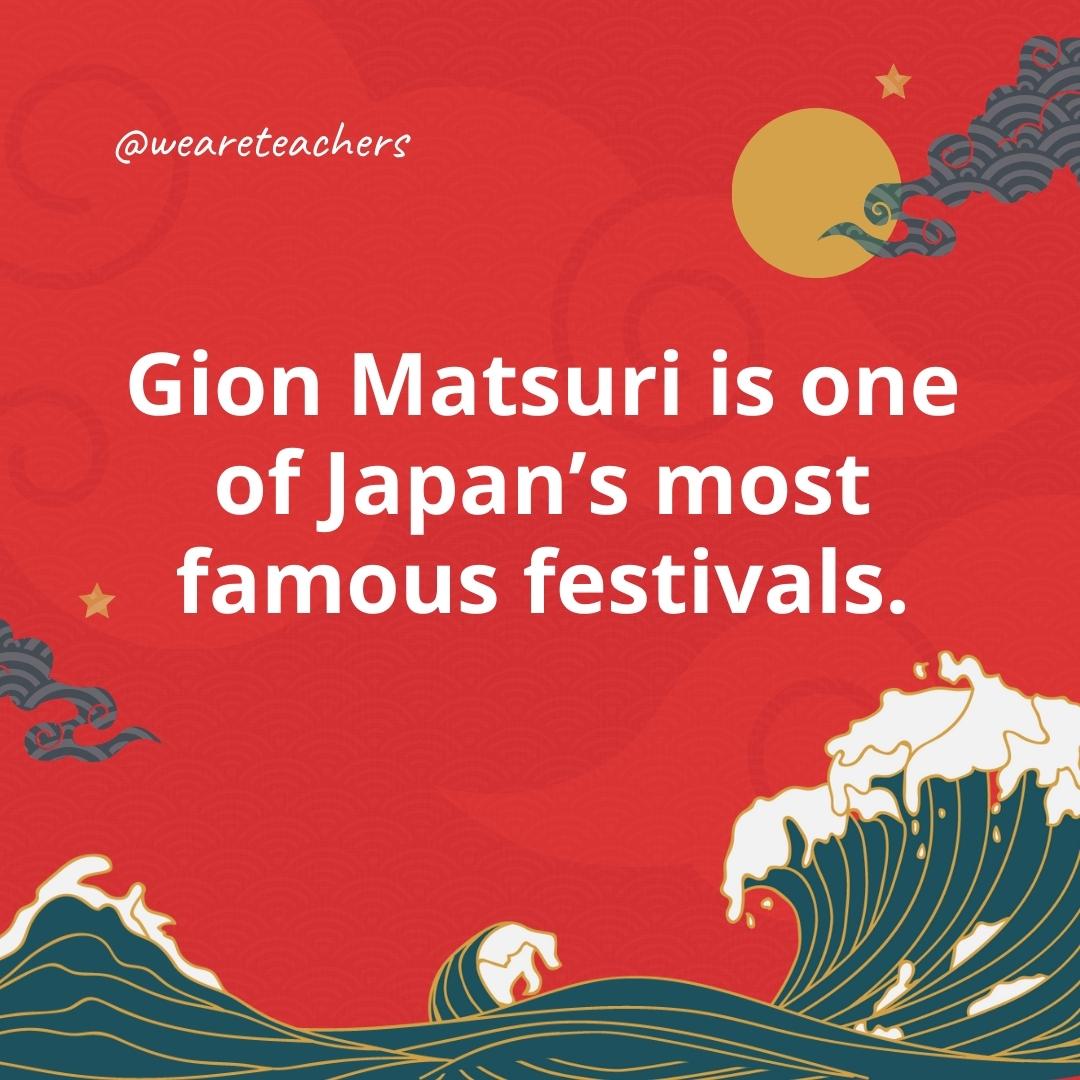
Taking place in the historic city of Kyoto, it features colorful processions of floats, traditional performances, and lively celebrations.
Japan has a deep appreciation for nature.
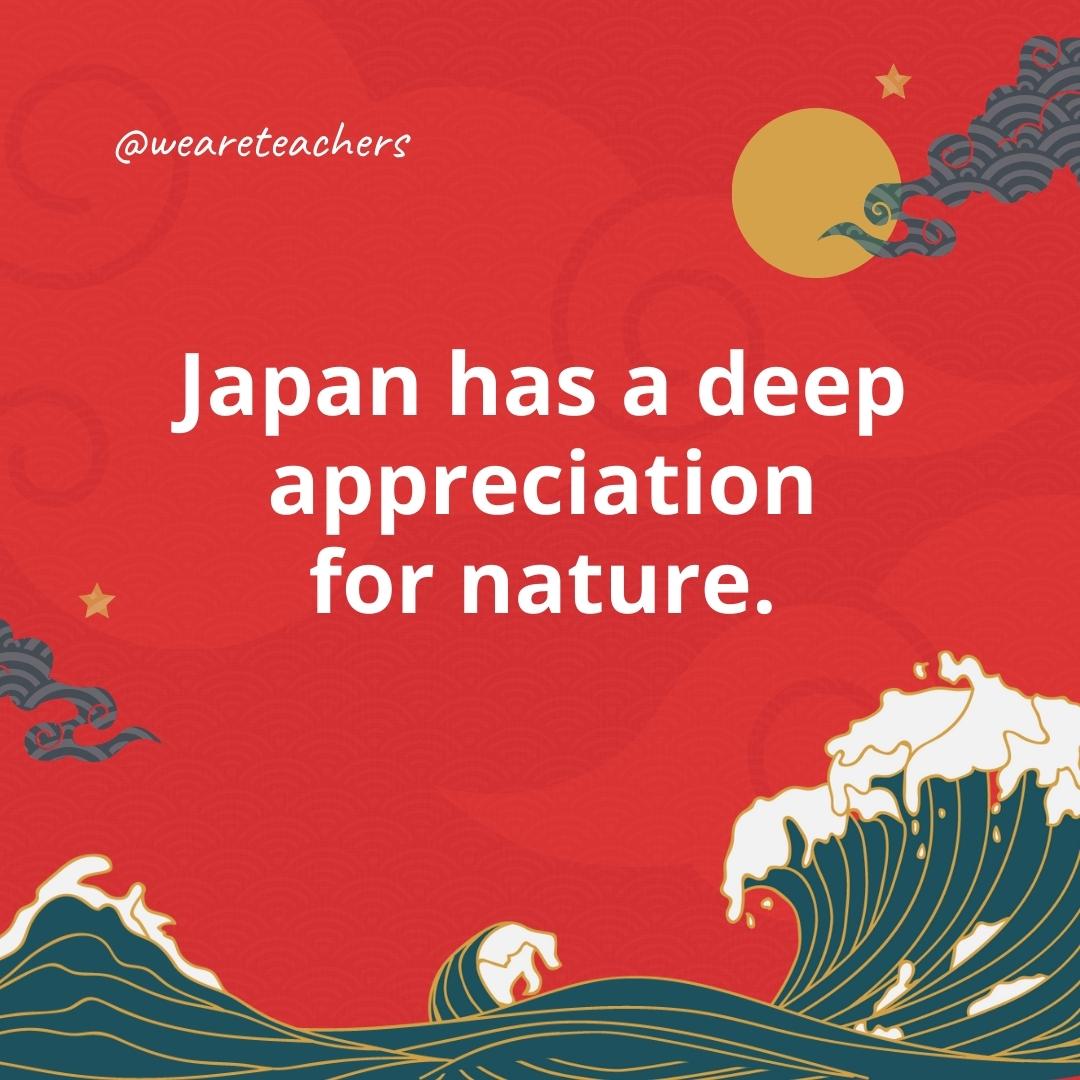
Along with cherry blossom viewing and forest bathing, this is evident in Japan’s tradition of cultivating bonsai trees, which involves the meticulous art of growing and sculpting miniature trees in containers.
The Yayoi period dates back to around 300 BC in Japan.
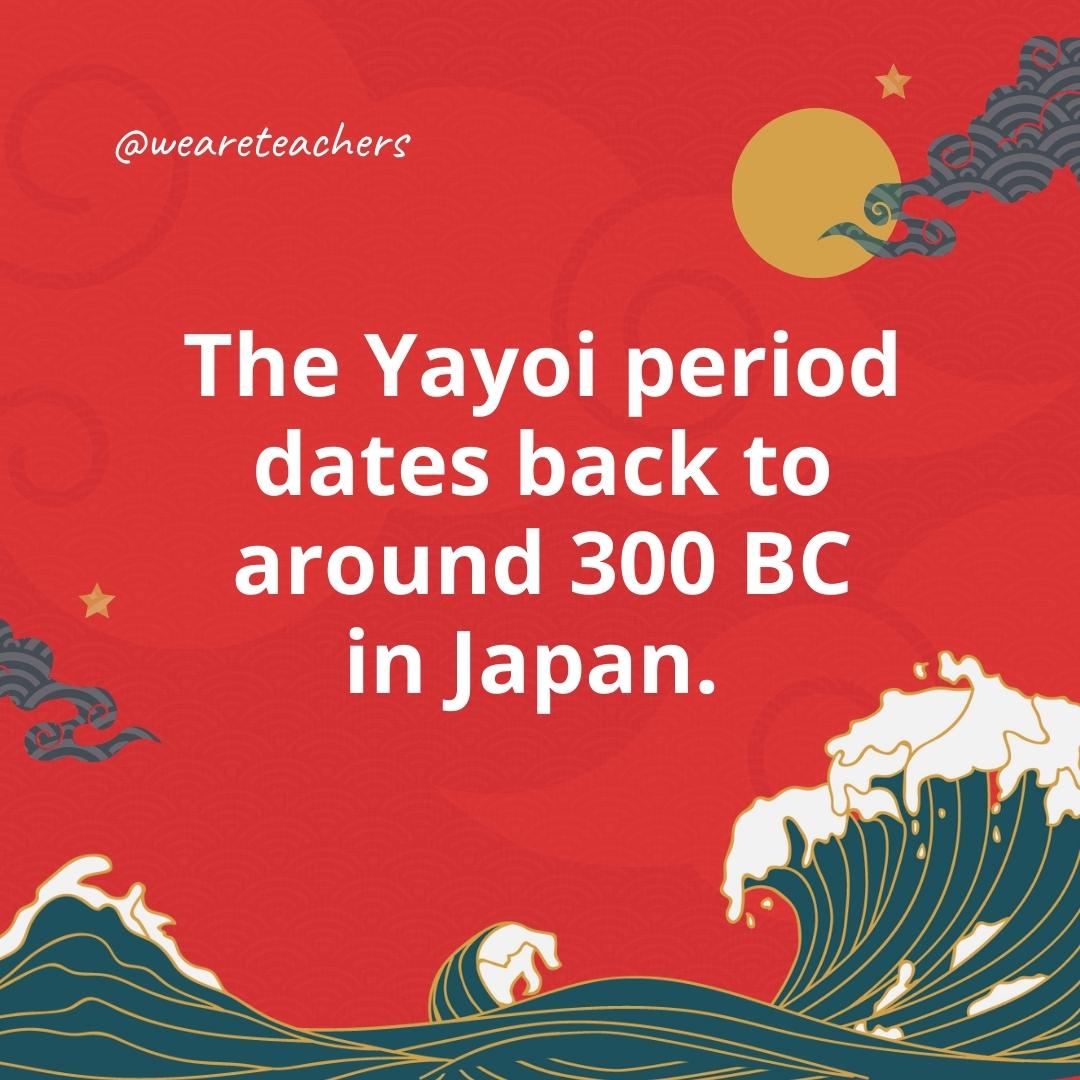
It marks the introduction of rice cultivation, metalworking, and weaving in Japan, leading to the development of a more structured society.
Japanese cuisine is healthy and delicious.
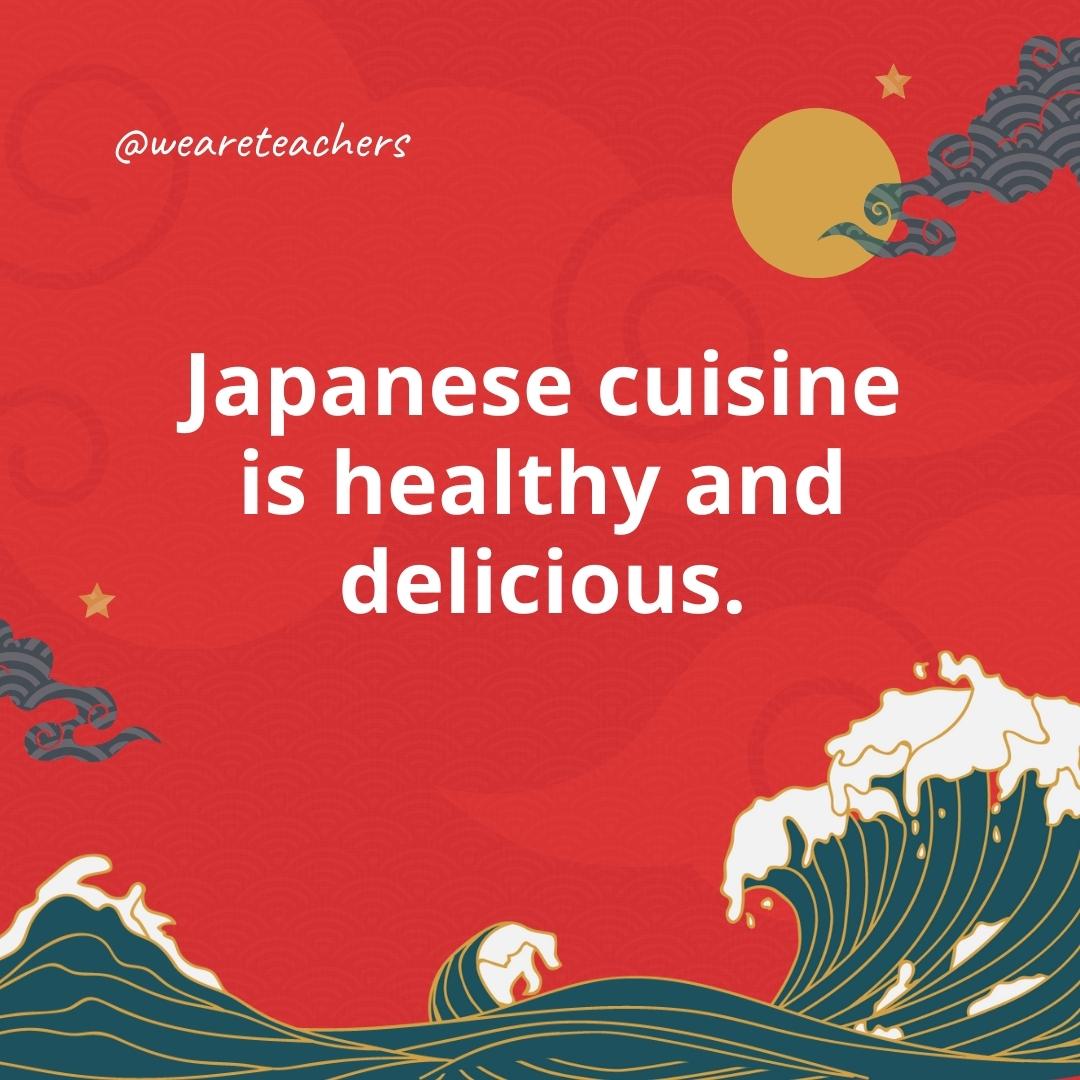
In addition to sushi and sashimi, dishes such as tempura, okonomiyaki, udon, and yakitori, which are known for their fresh ingredients and meticulous preparation, are very popular.
Japan boasts a rich cultural heritage.
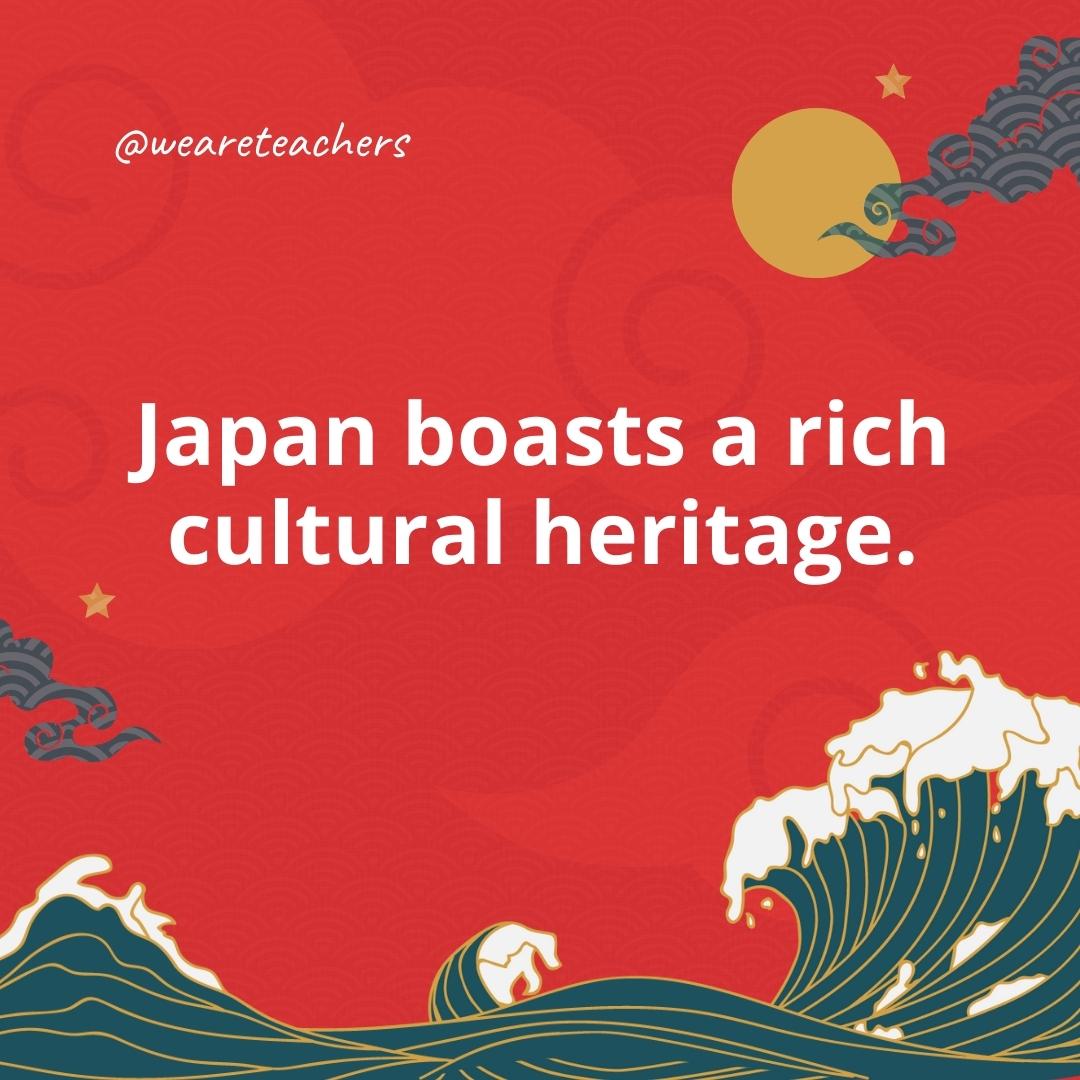
This includes traditional arts such as ikebana (flower arranging), calligraphy, and tea ceremonies.
Japan is home to the tallest Buddha statue in the world.
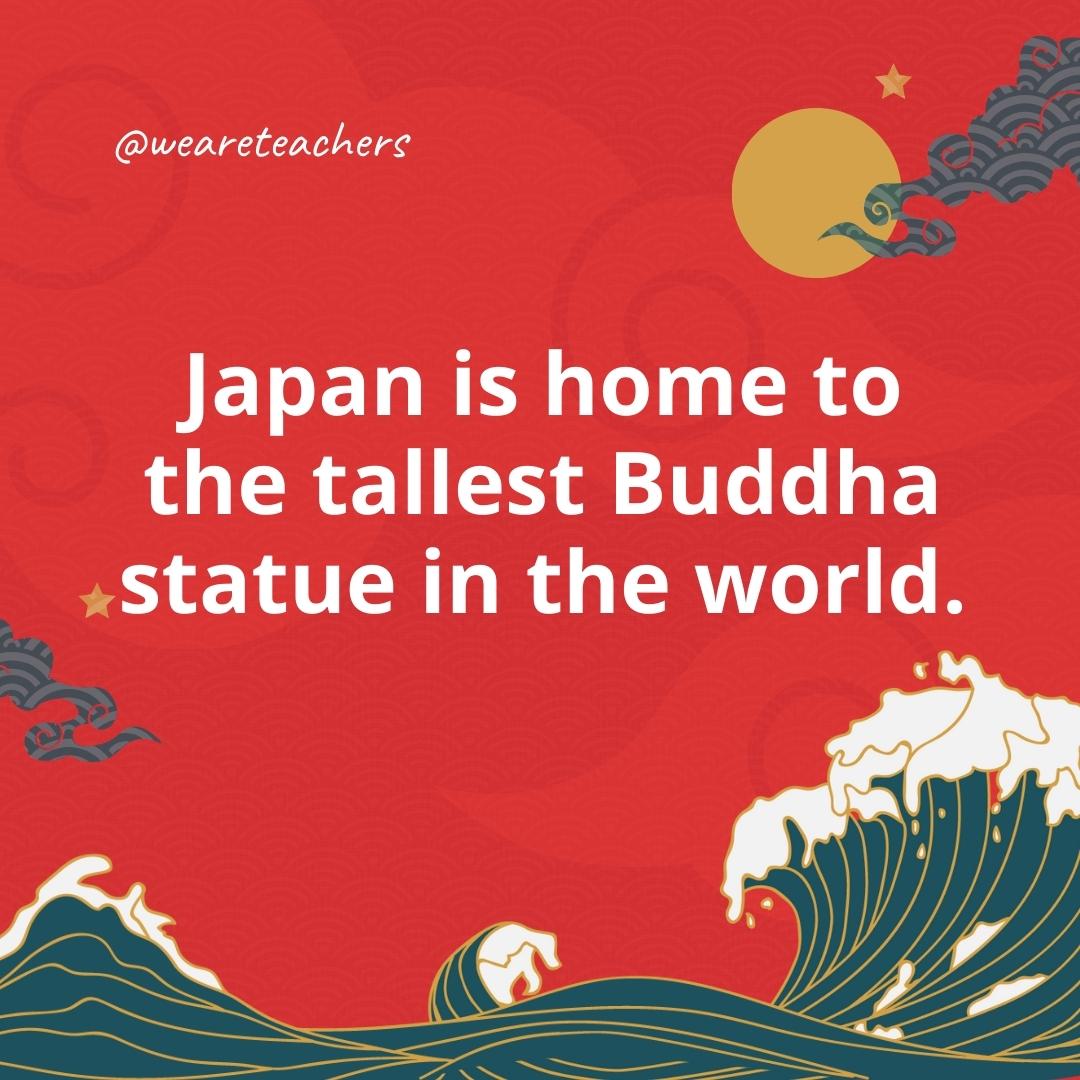
Constructed by Higashi Honganji Temple, the Ushiku Daibutsu stands 120 meters tall in Ushiku, Ibaraki, and is the world’s largest bronze statue of Buddha. According to All Nippon Airways, “The interior of the statue houses the main worship hall as well as an 85-meter-high observatory, and a serene garden at its feet creates a peaceful environment.”
People remove their shoes before entering their homes in Japan.
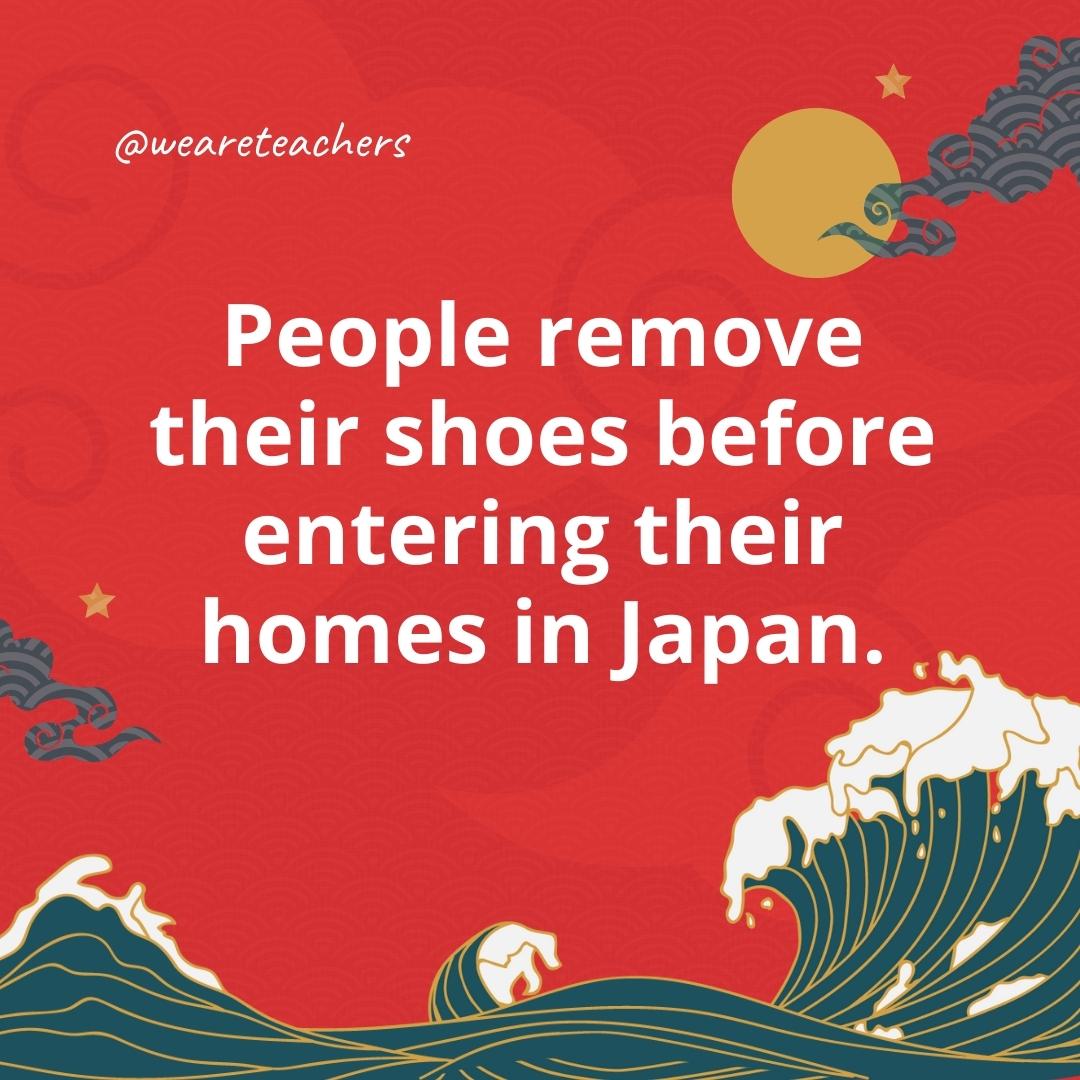
Certain restaurants, temples, shrines, and historic sites may also ask you to take off your shoes before entering.
Facts About Japanese Inventions
Japan is a global leader in technological innovation.
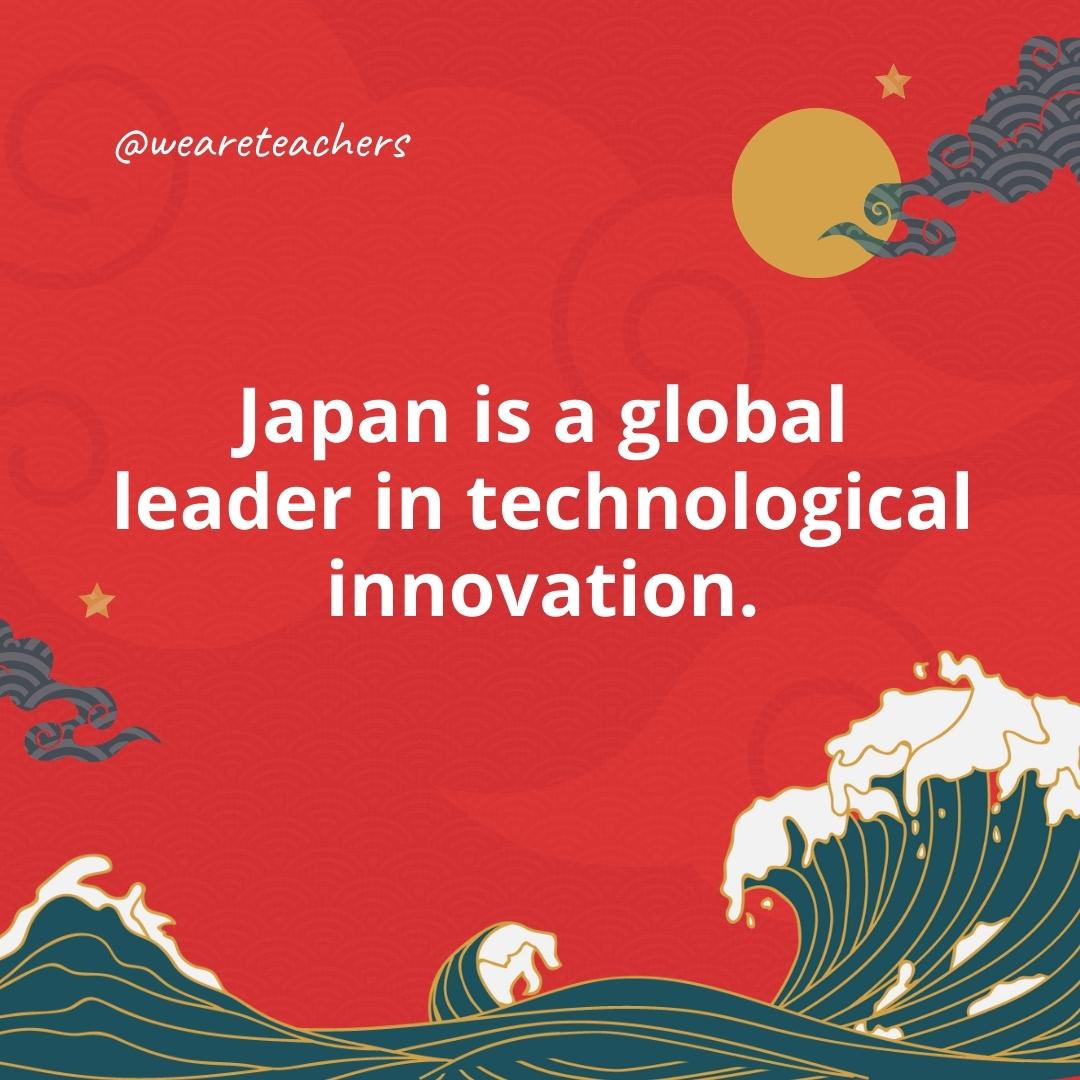
The country is known for its contributions to various fields, including robotics, automotive manufacturing, electronics, and precision machinery. Read more about how Japanese technology shaped the world.
The Shinkansen in Japan stands as one of the fastest high-speed trains in the world.
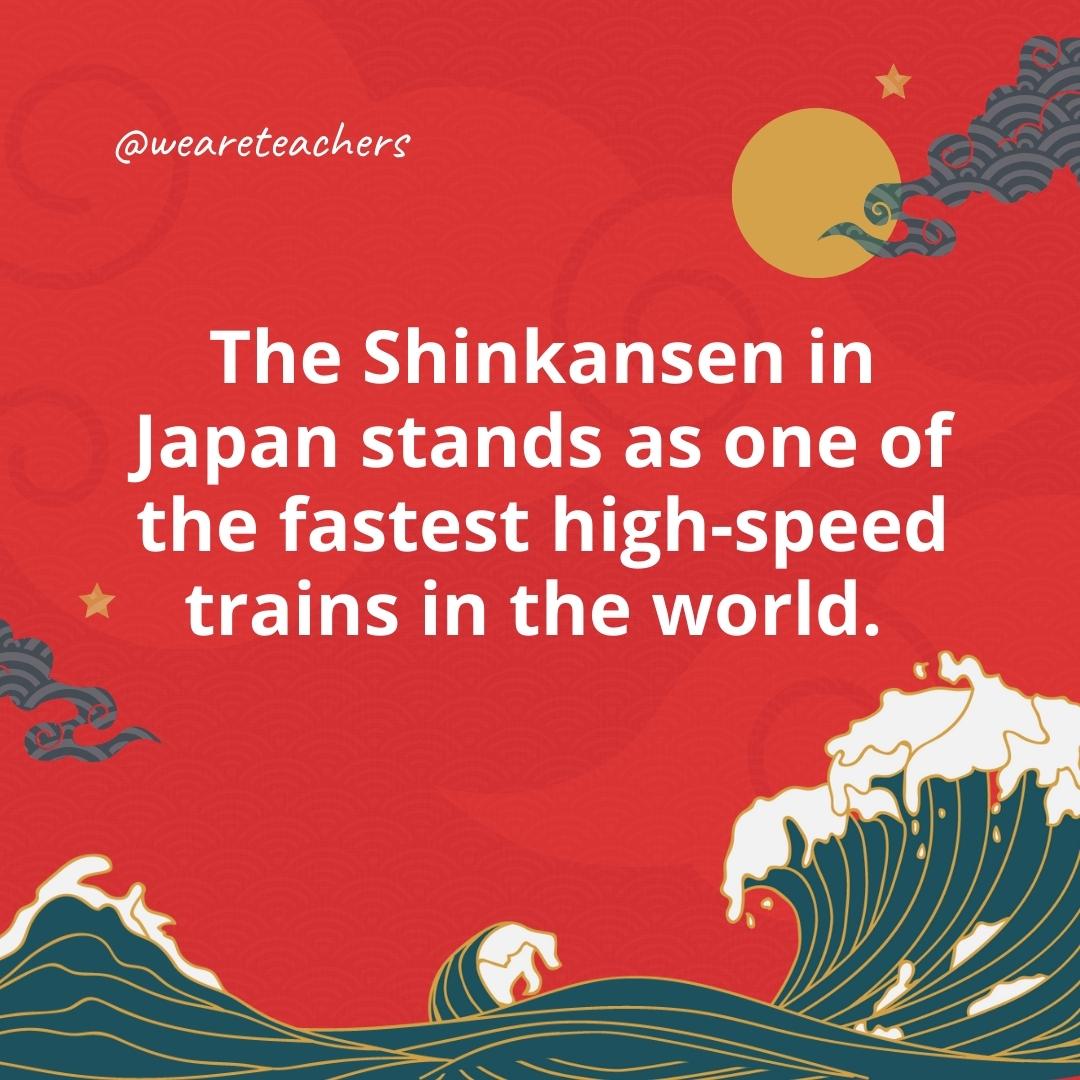
Also known as the bullet train, it is a symbol of Japan’s technological advancements in transportation. Learn more about how this high-speed train works here!
Karaoke originated in Japan.
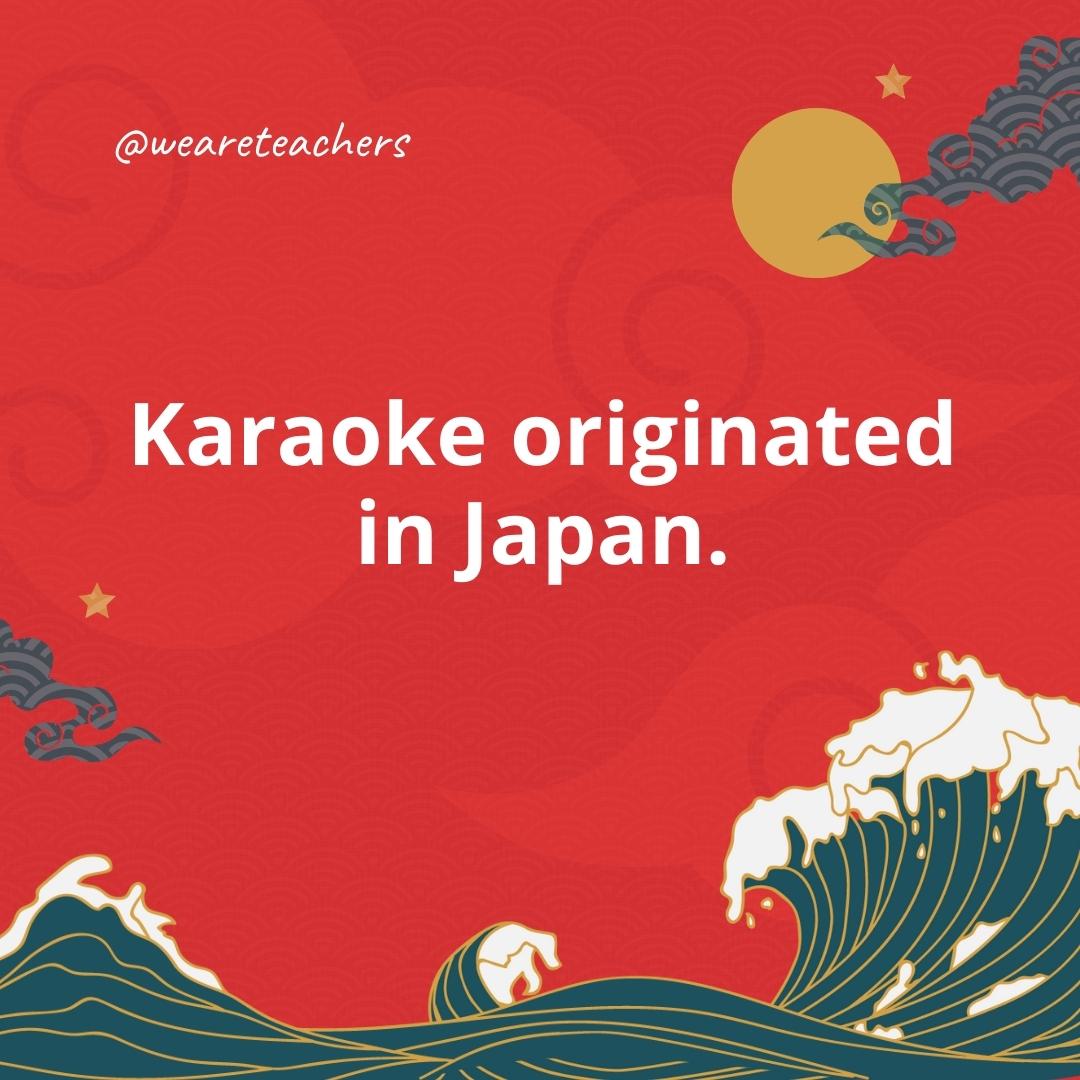
This popular form of entertainment continues to be a global phenomenon.
Forest bathing started in Japan.
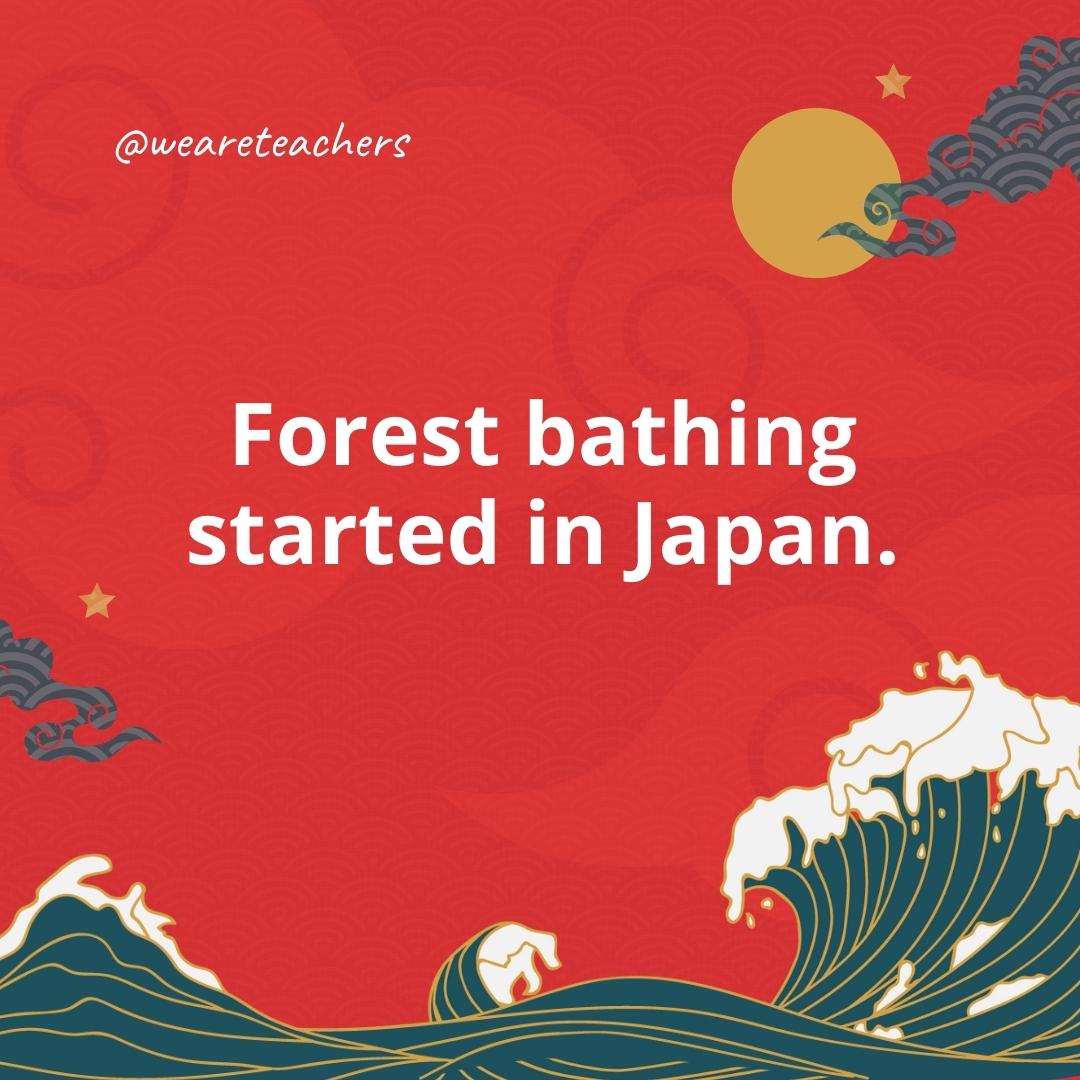
Referred to as shinrin-yoku (forest bath), it is a popular wellness activity in Japan that involves immersing oneself in the atmosphere of the forest for relaxation and improved health.
Japan invented emojis.
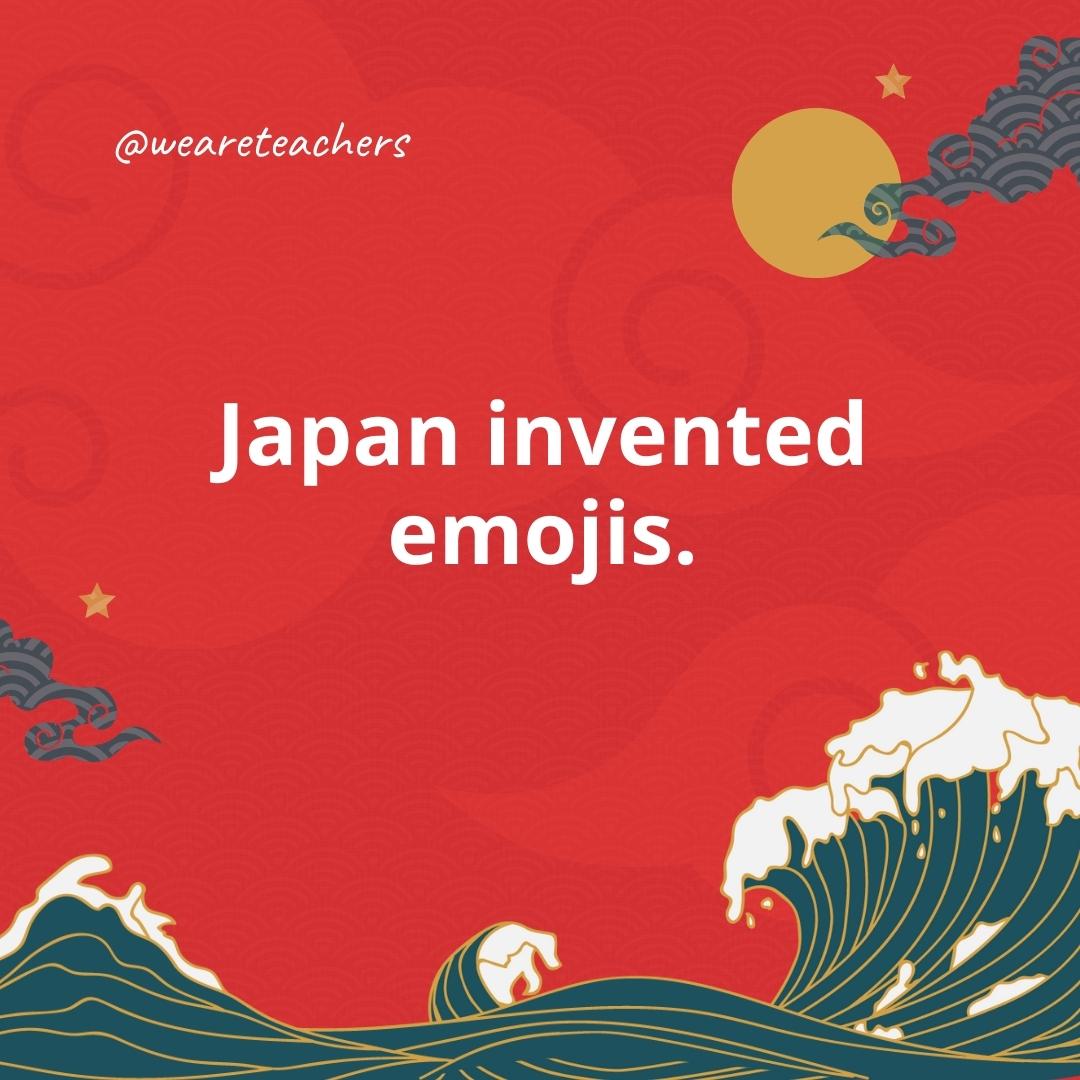
This ultra-popular invention was created by two Japanese phone carriers. In 1997, SoftBank (known as J-Phone at the time) released their SkyWalker DP-211SW mobile phone with the world’s first emoji set built in! Two years later, Docomo released a set of 176 emojis designed by Shigetaka Kurita.
Haiku poetry originated in Japan.
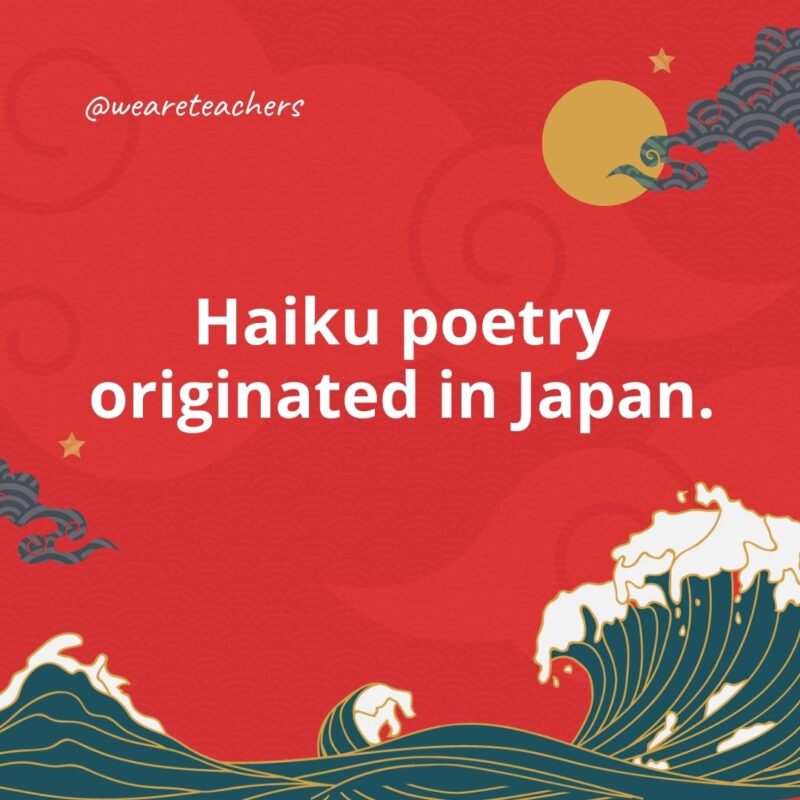
Almost everyone has heard of the poetic form that “consists of three lines, with five syllables in the first line, seven in the second, and five in the third.”
Japan invented electric rice cookers.
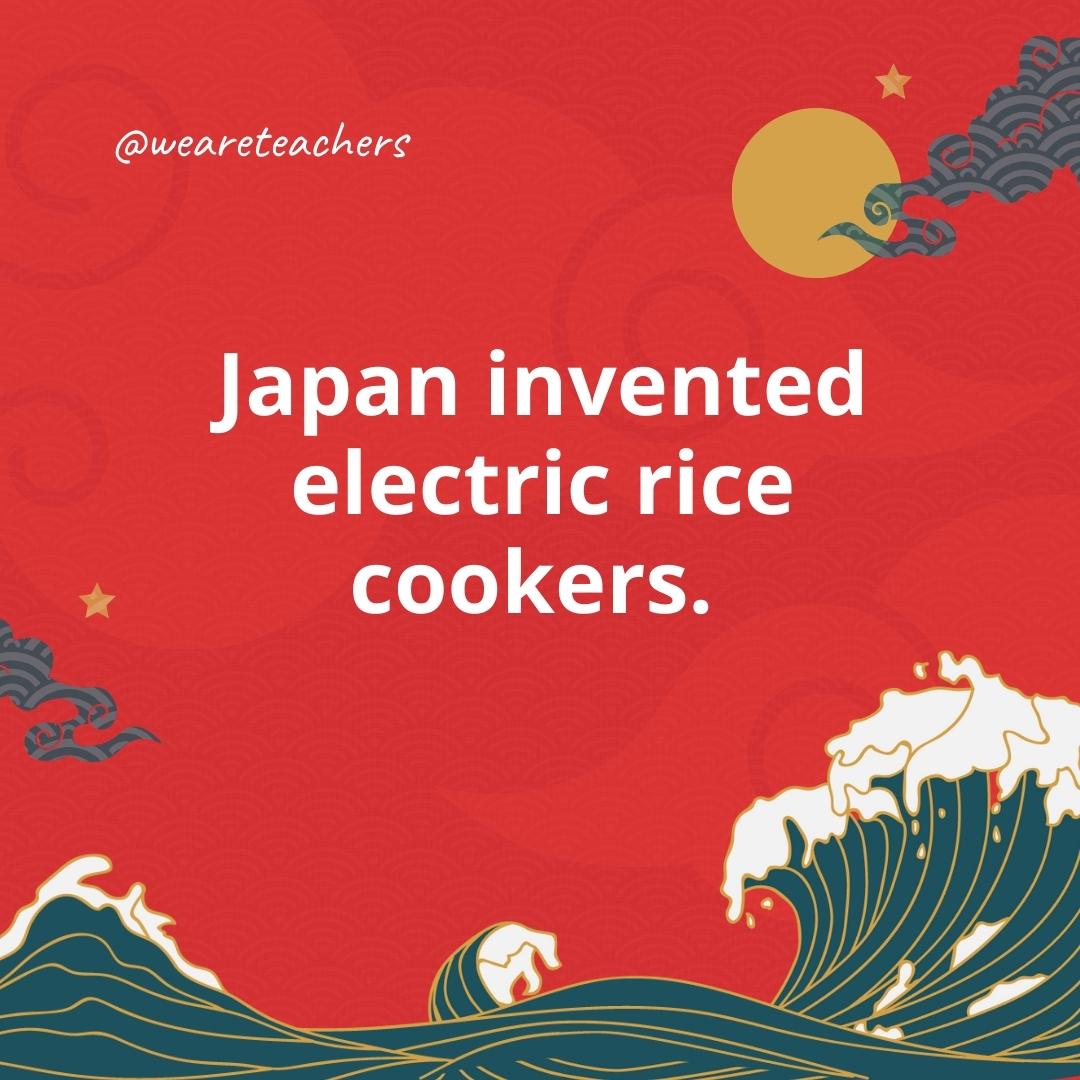
The first electric rice cookers were sold by Mitsubishi Electric Corporation in 1945. While the original models did not include an automatic turn-off feature, that was invented by Yoshitada Minami in 1956.
The Japanese invented tactile paving.
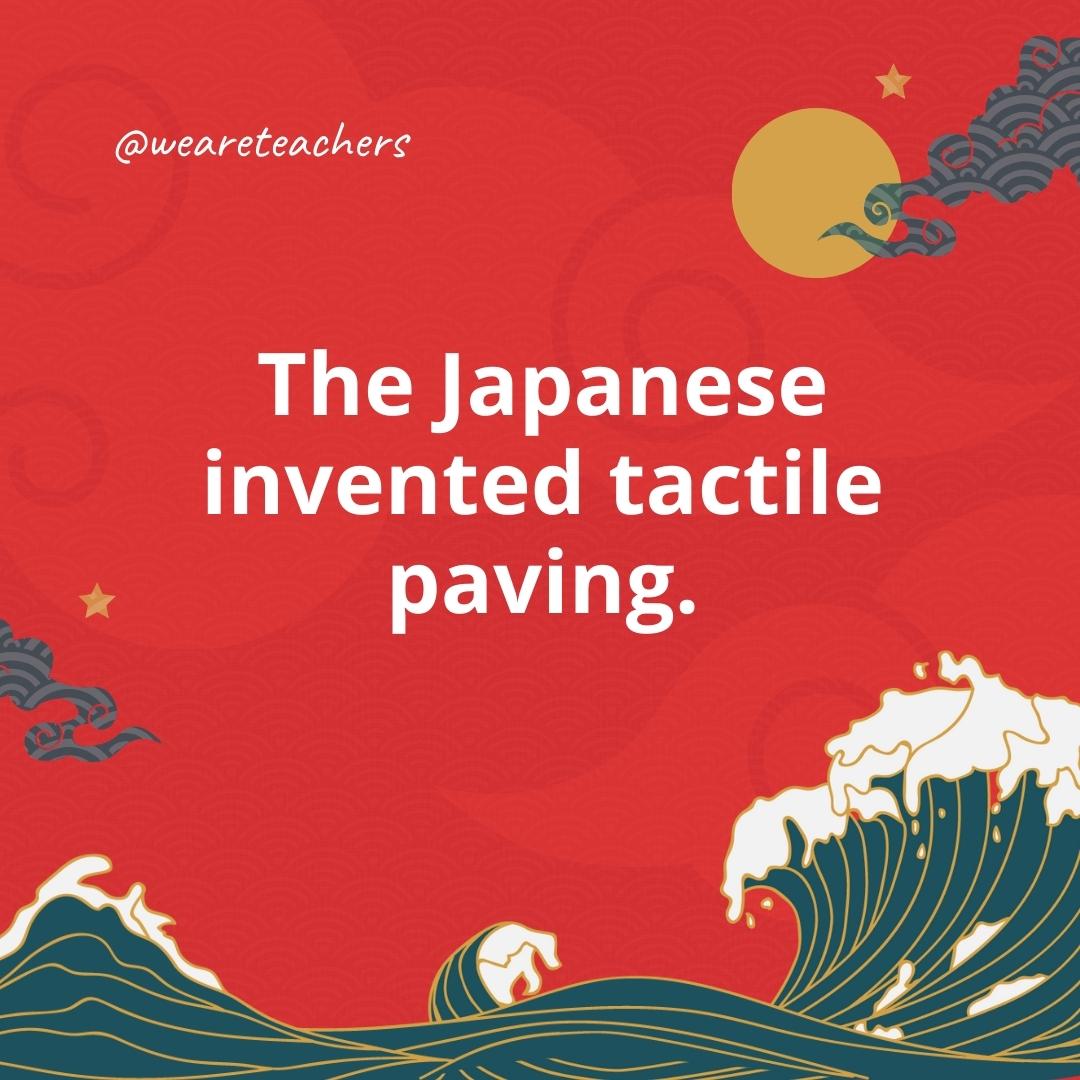
When Seiichi Miyake’s friend started slowly going blind, he created tactile bricks (or tenji blocks) to help visually impaired pedestrians navigate streets, curbs, and train station platforms. Watch a short video in honor of the man who created those lifesaving yellow bumpy blocks!
Japan introduced cassette players.
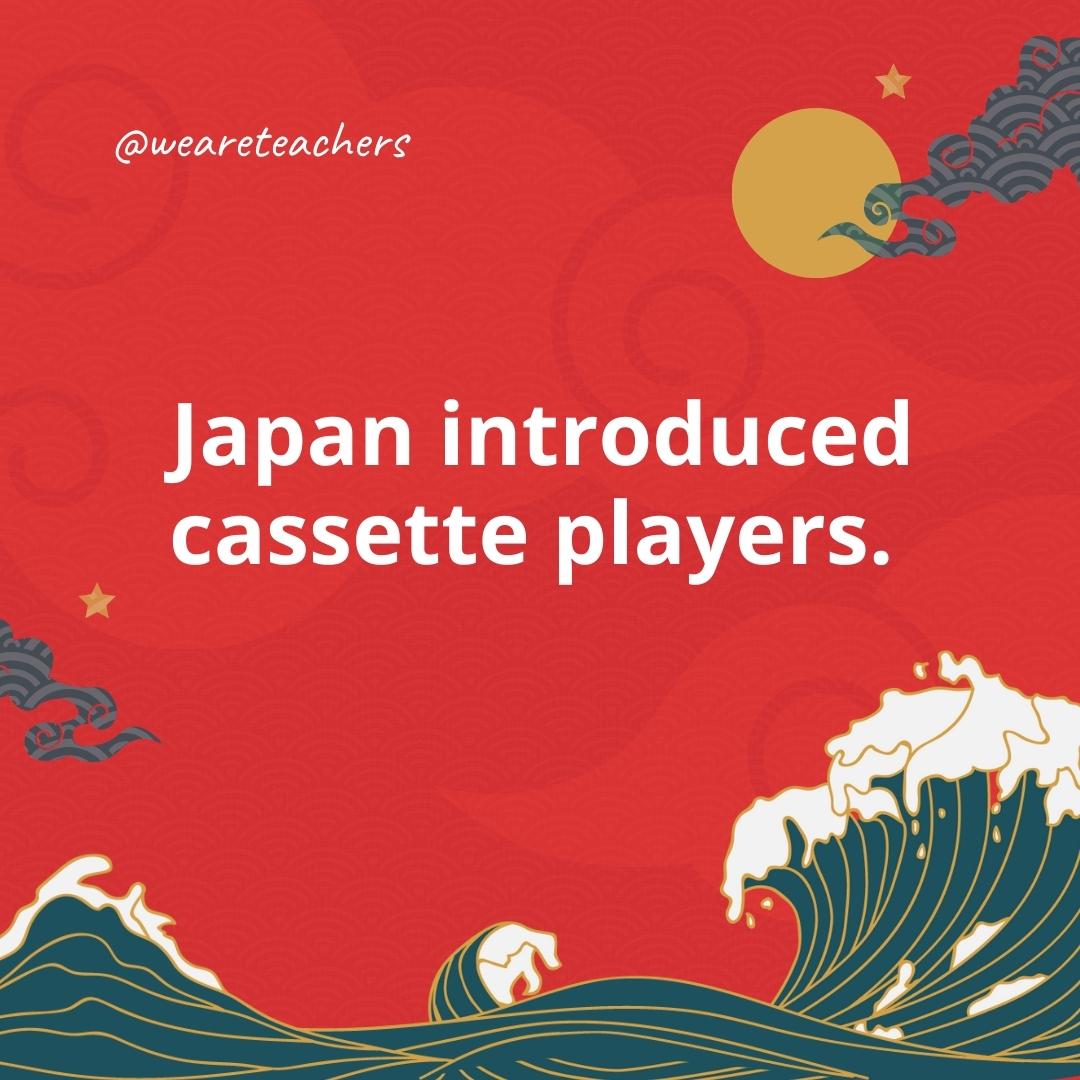
In 1979, 16 years after Phillips, a Dutch company, developed cassette technology, Sony released the TPS-L2 Walkman. The personal cassette player allowed for the use of headphones and changed the way people listened to music.
Reiki emerged in Japan in the late 1800s.
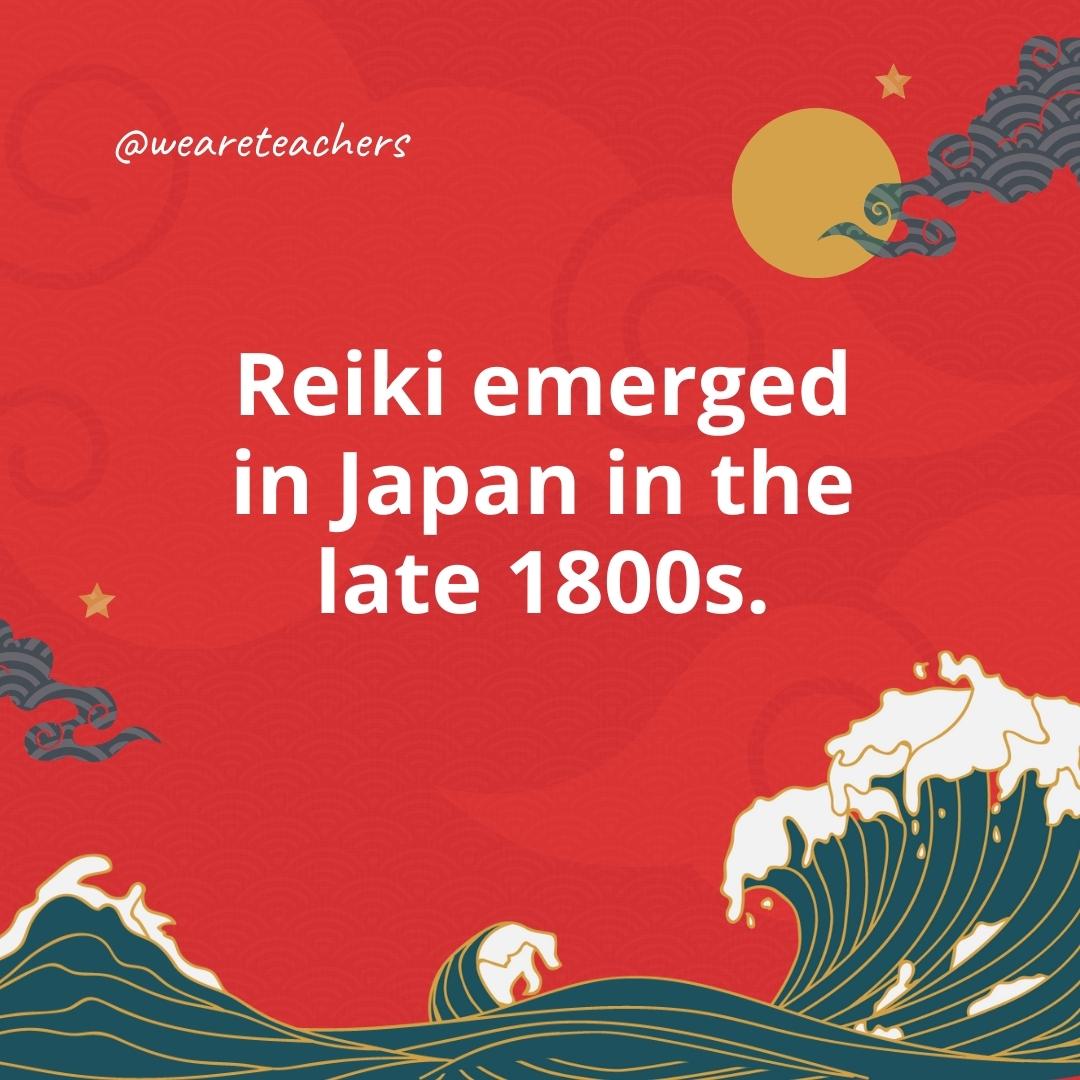
The alternative therapy commonly referred to as energy healing is based on the idea that a “universal energy” flows through us and is what causes us to be alive.
More Fun Facts About Japan
Japan has the world’s 10th-largest population.
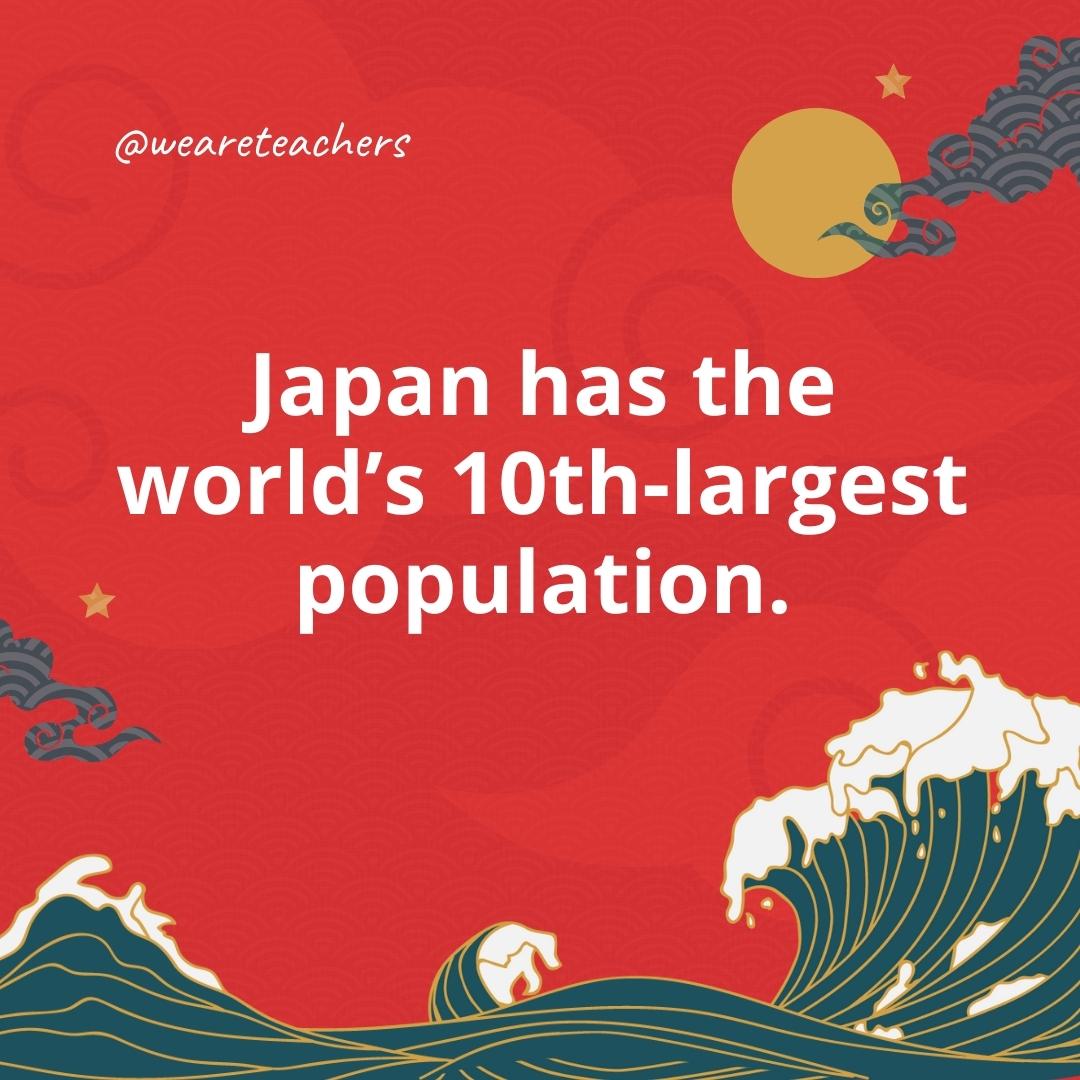
More than 123 million people call Japan home. This works out to just about 1.53% of the world’s total population!
Sumo is the national sport of Japan.
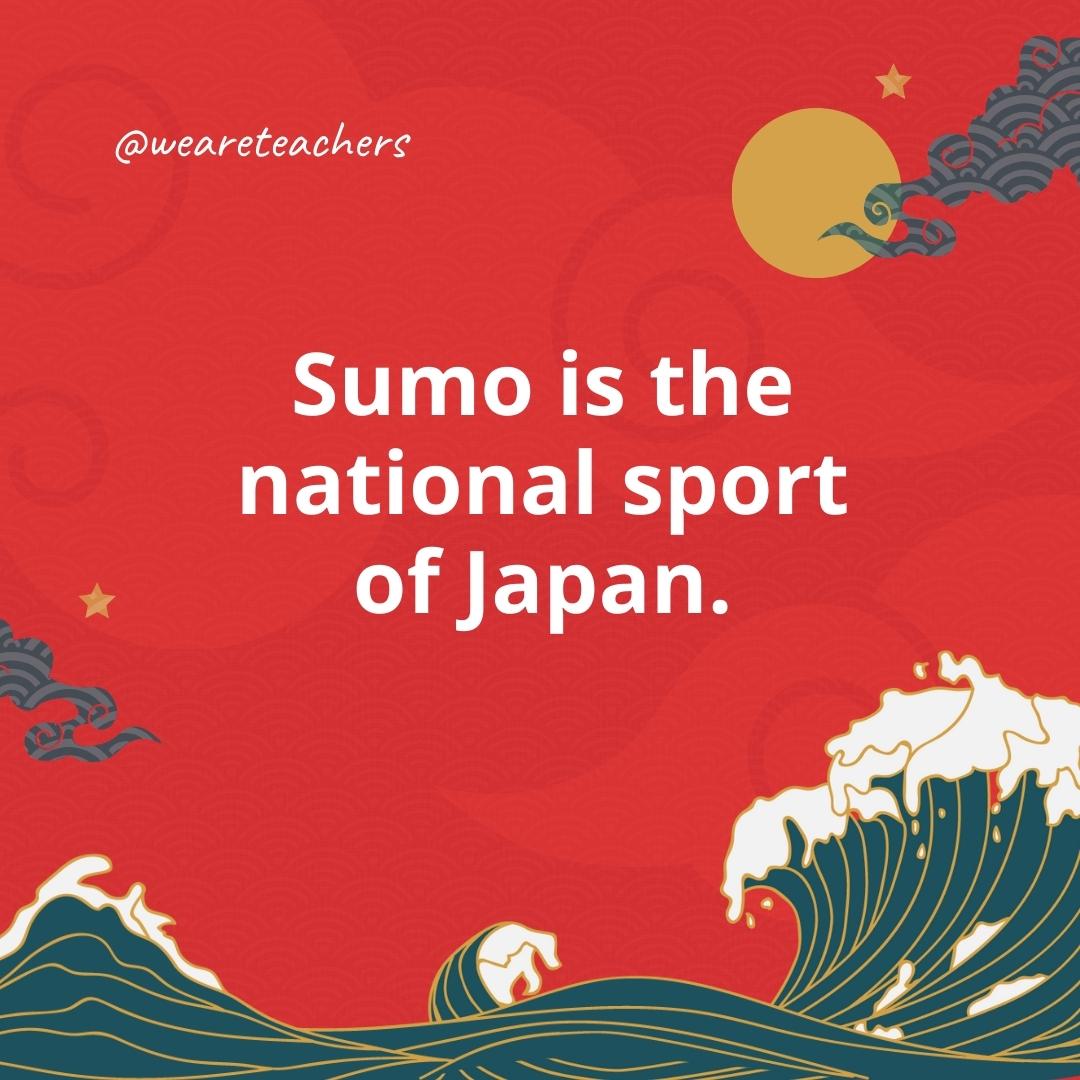
The history of sumo spans over 1,500 years. Watch this video about How Sumo Wrestlers Stay Healthy on 7,000 Calories a Day.
The official currency of Japan is the yen.
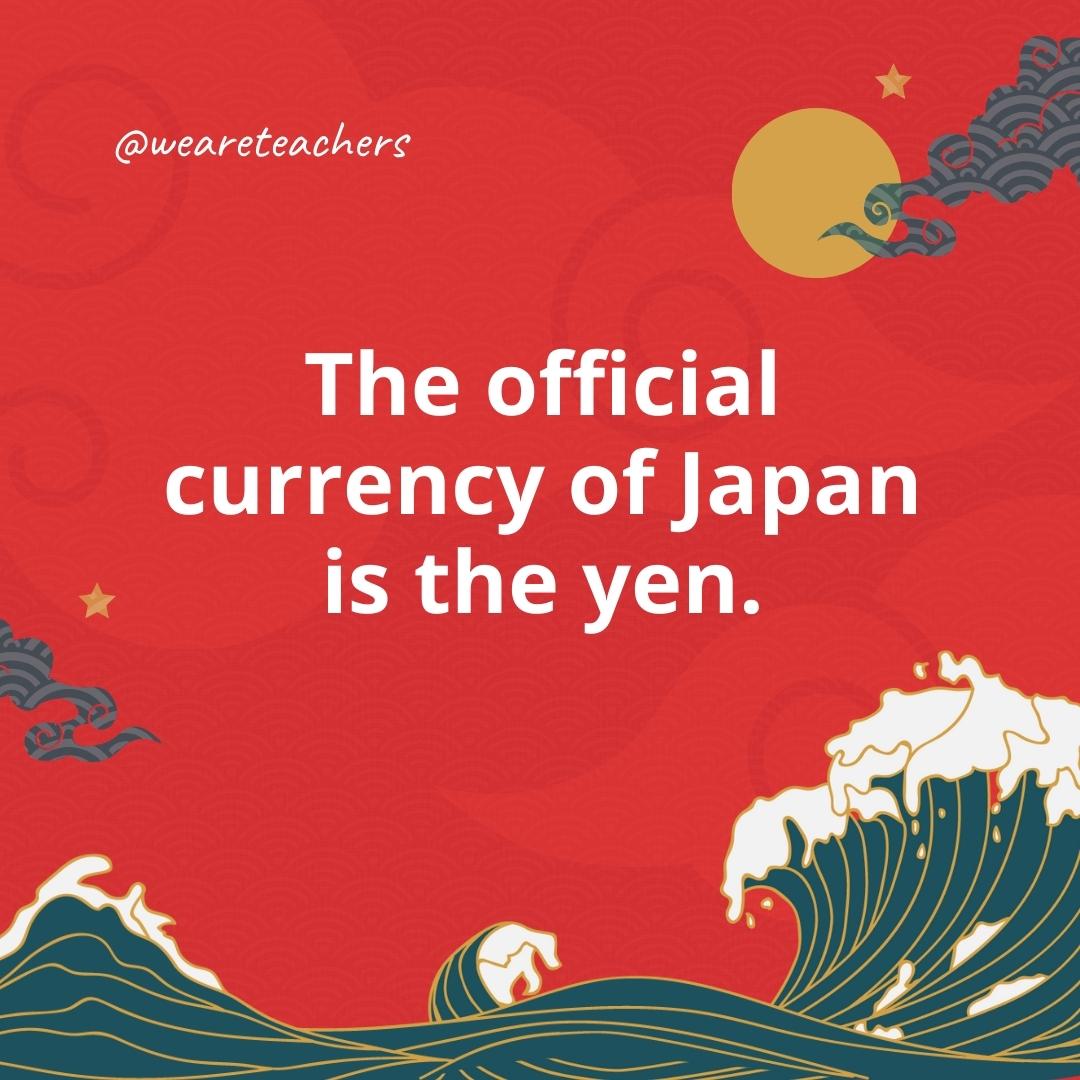
In 1871, the Meiji government enacted the New Currency Act, officially designating the yen as the basic currency unit.
Japan has a constitutional monarchy.
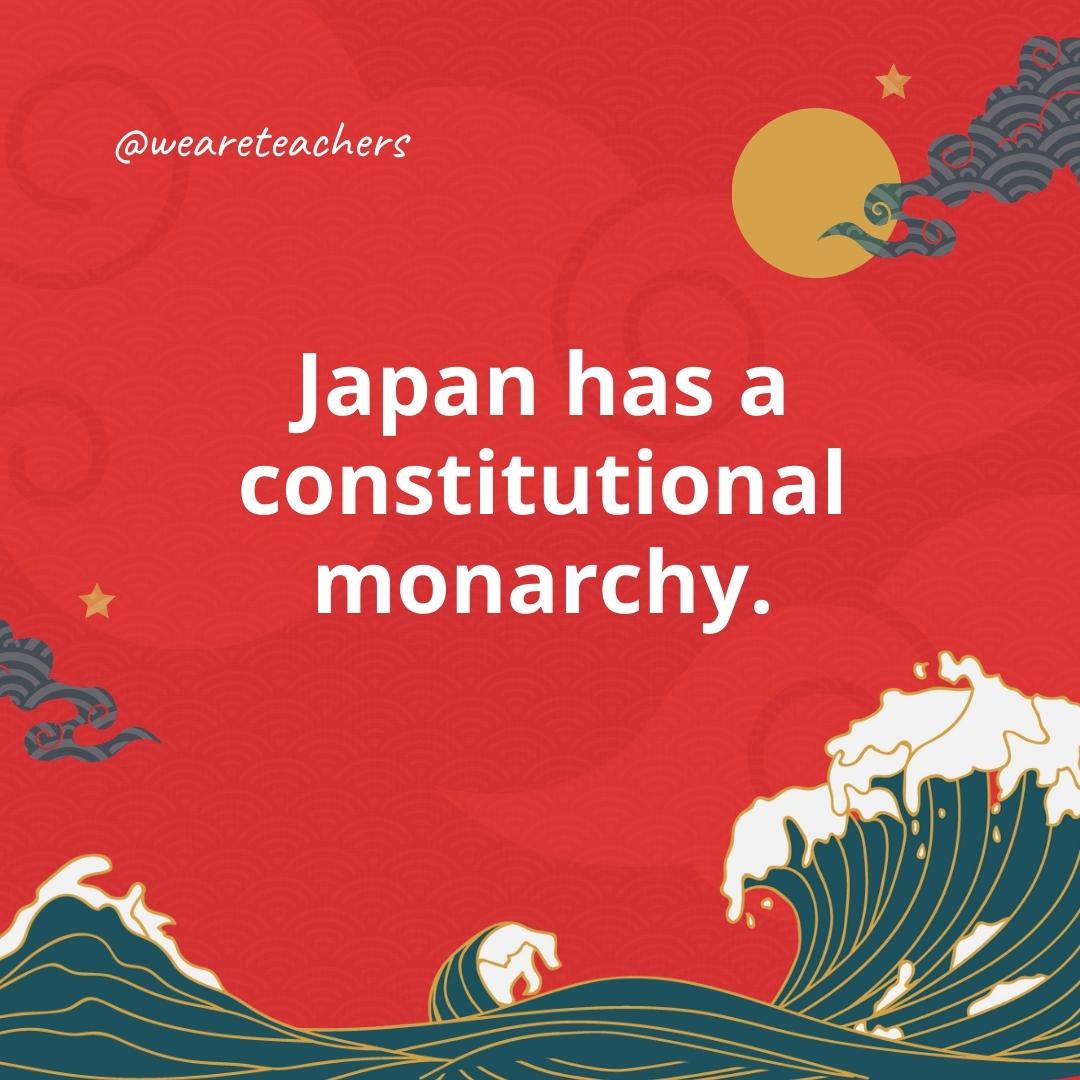
The emperor symbolizes the state and unity of the Japanese people. Watch this video about the countries that still have monarchies!
Japan is home to the oldest company in the world.
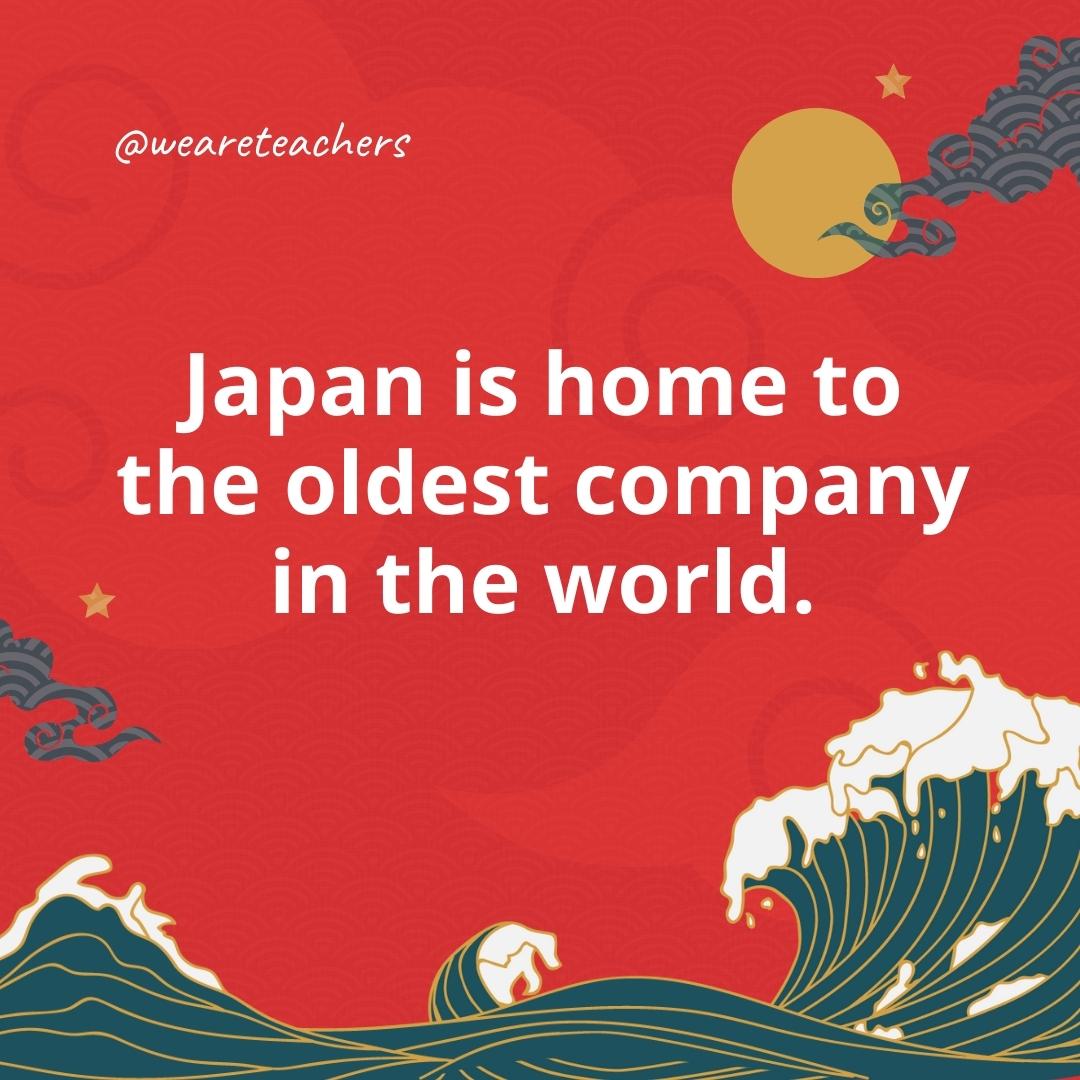
Operated continuously for over 1,300 years, the same family still runs Nishiyama Onsen Keiunkan, a hot-spring hotel, since founding it in AD 705. It even holds the Guinness World Record for the oldest hotel!
The Tokyo Stock Exchange is one of the largest in the world.
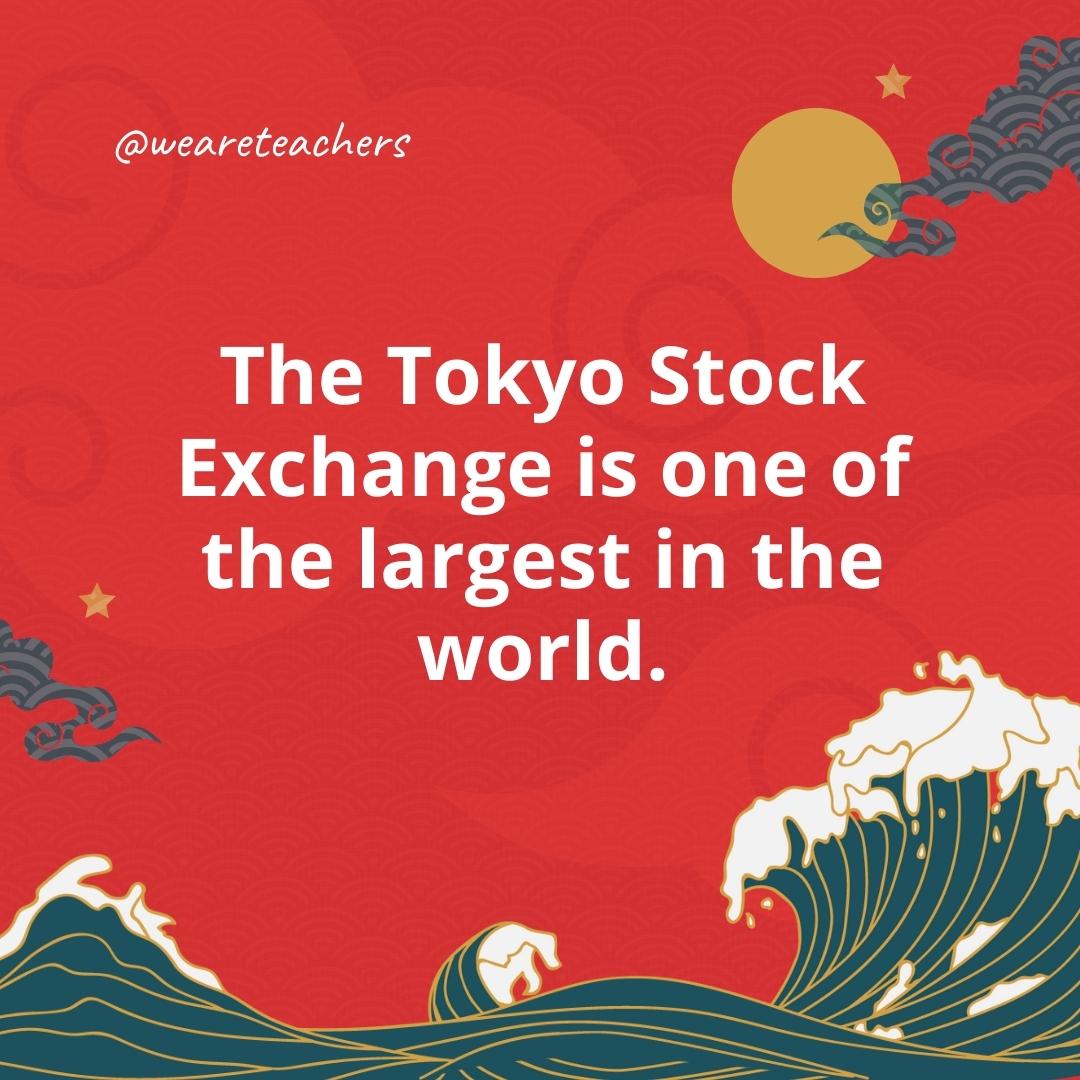
According to Britannica, “The exchange was first opened in 1878 to provide a market for the trading of government bonds that had been newly issued to former samurai.”
The Hiroshima Peace Memorial in Japan is a UNESCO World Heritage Site.
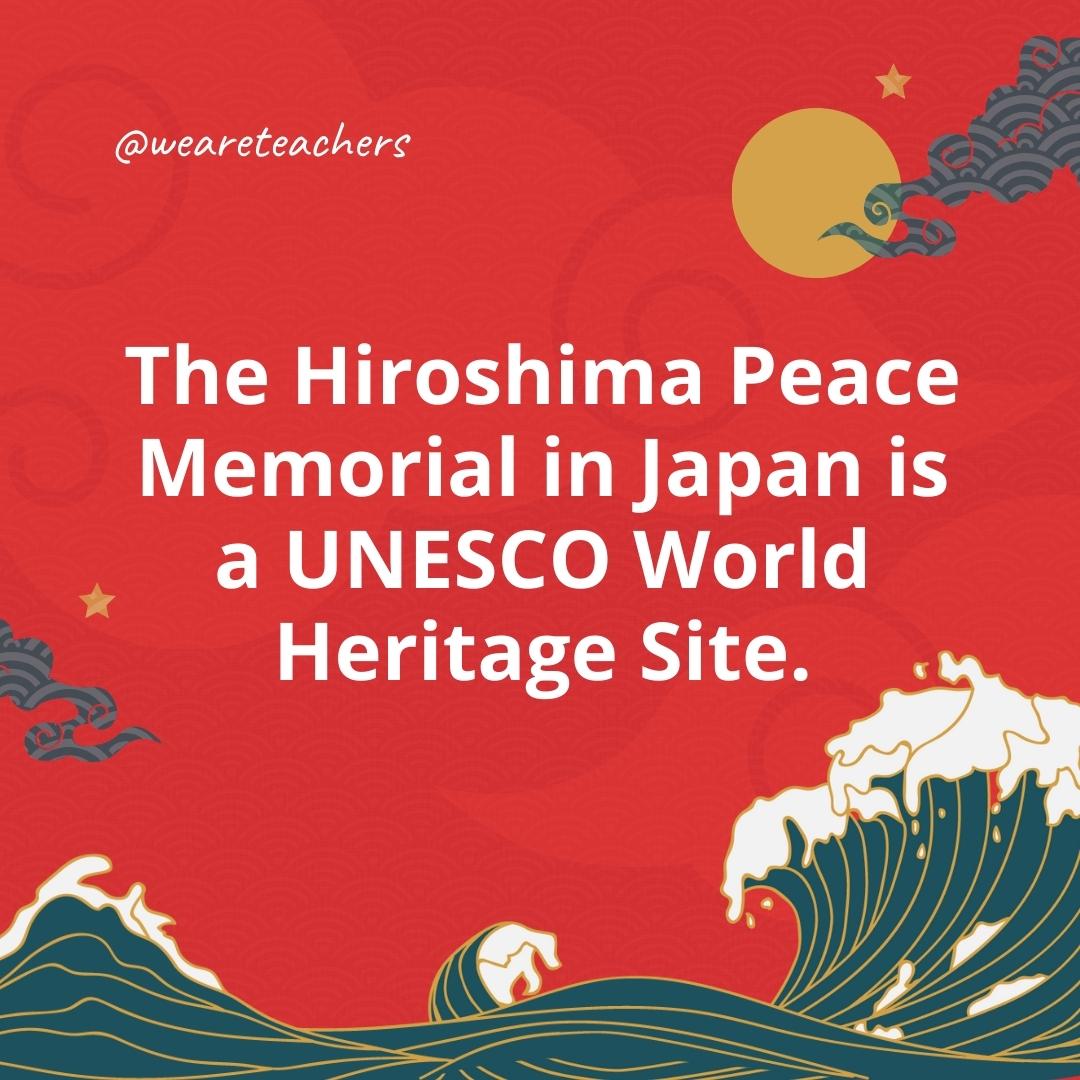
The Atomic Bomb Dome and Hiroshima Peace Memorial Museum serve as dedications to promoting peace and commemorating the victims of the atomic bombing in 1945.
Japan has one of the highest life expectancies in the world.
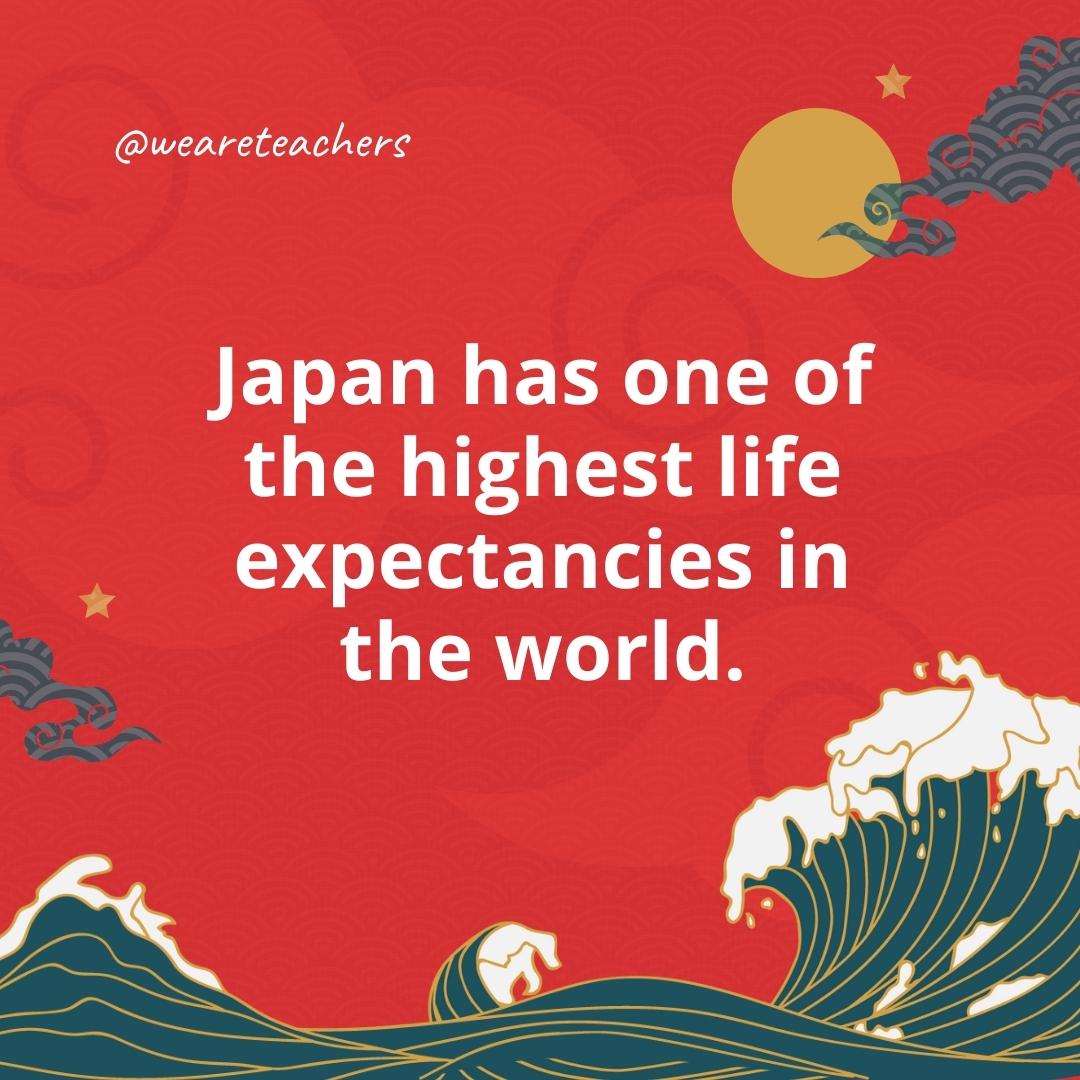
This is one of the most well-known facts about Japan! Factors such as a healthy diet, active lifestyle, and access to quality healthcare contribute to their longevity.
Pokémon, Super Mario, and Hello Kitty are all from Japan!
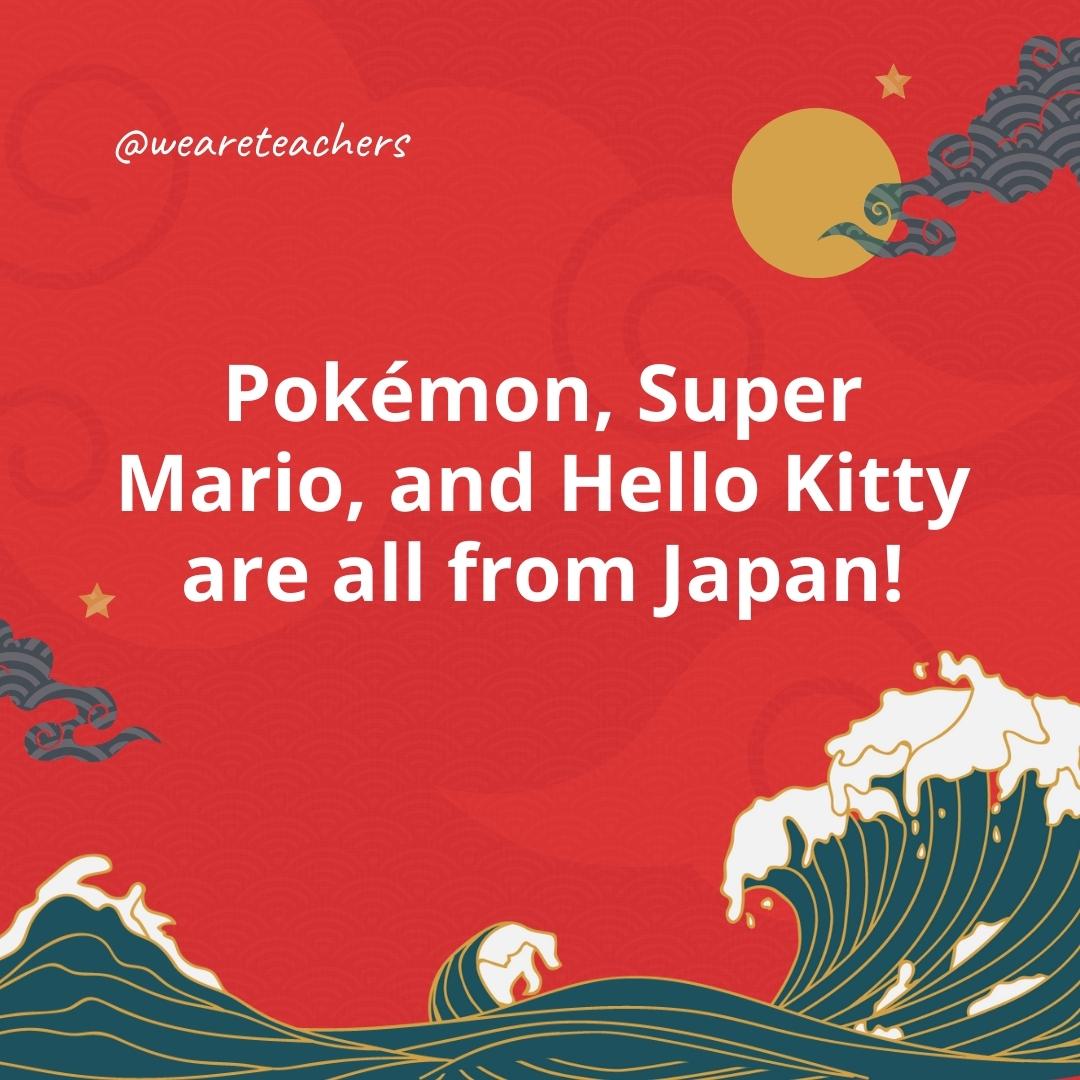
There are, of course, many many more. Check out this list of 18 Popular Japanese Cartoon Characters!
Anime and manga are popular forms of entertainment in Japan.
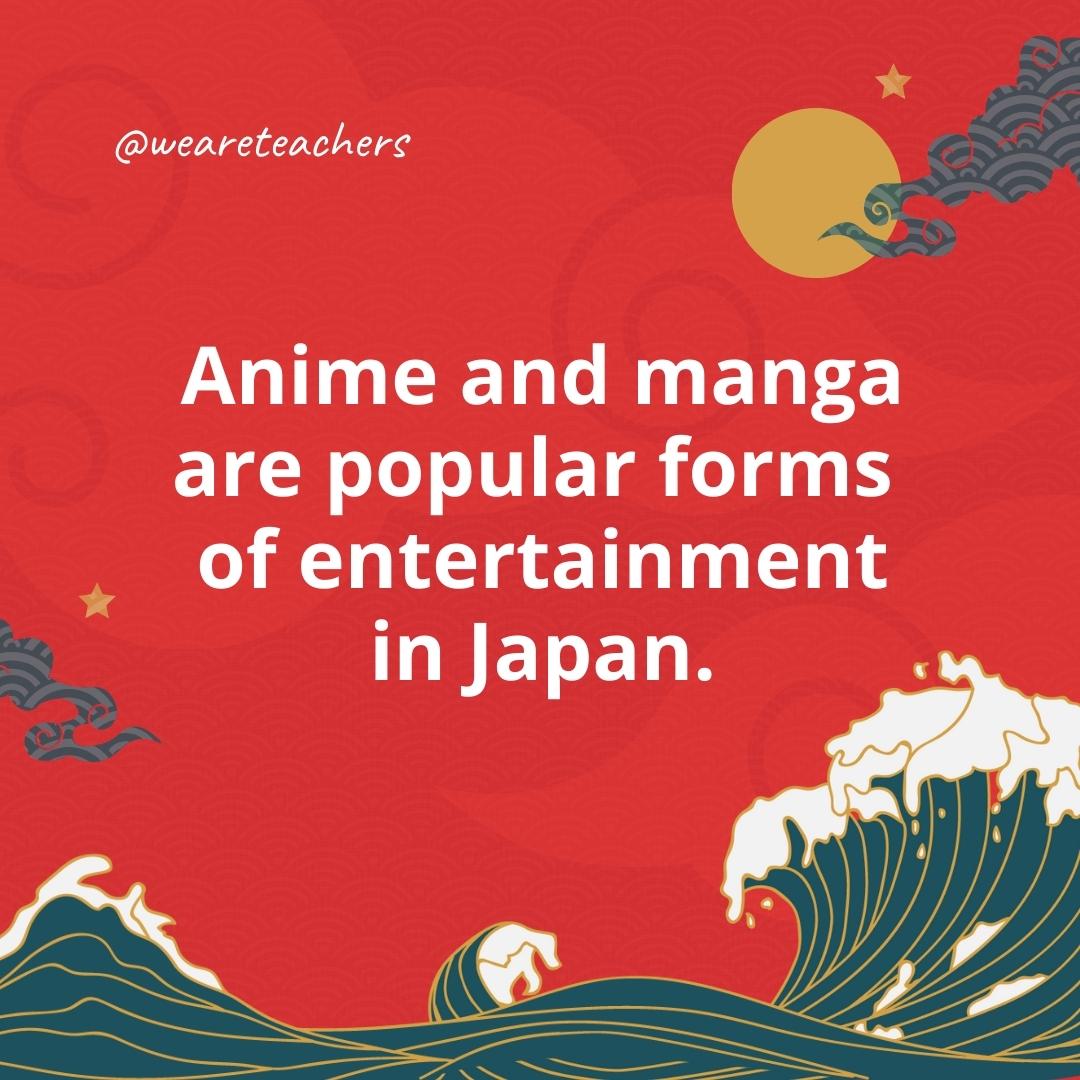
While they originated in Japan, anime and manga have a dedicated global fan base. Check out this list of The Top 25 Greatest Anime Characters of All Time.
Japan is the only country to have suffered atomic bombings.
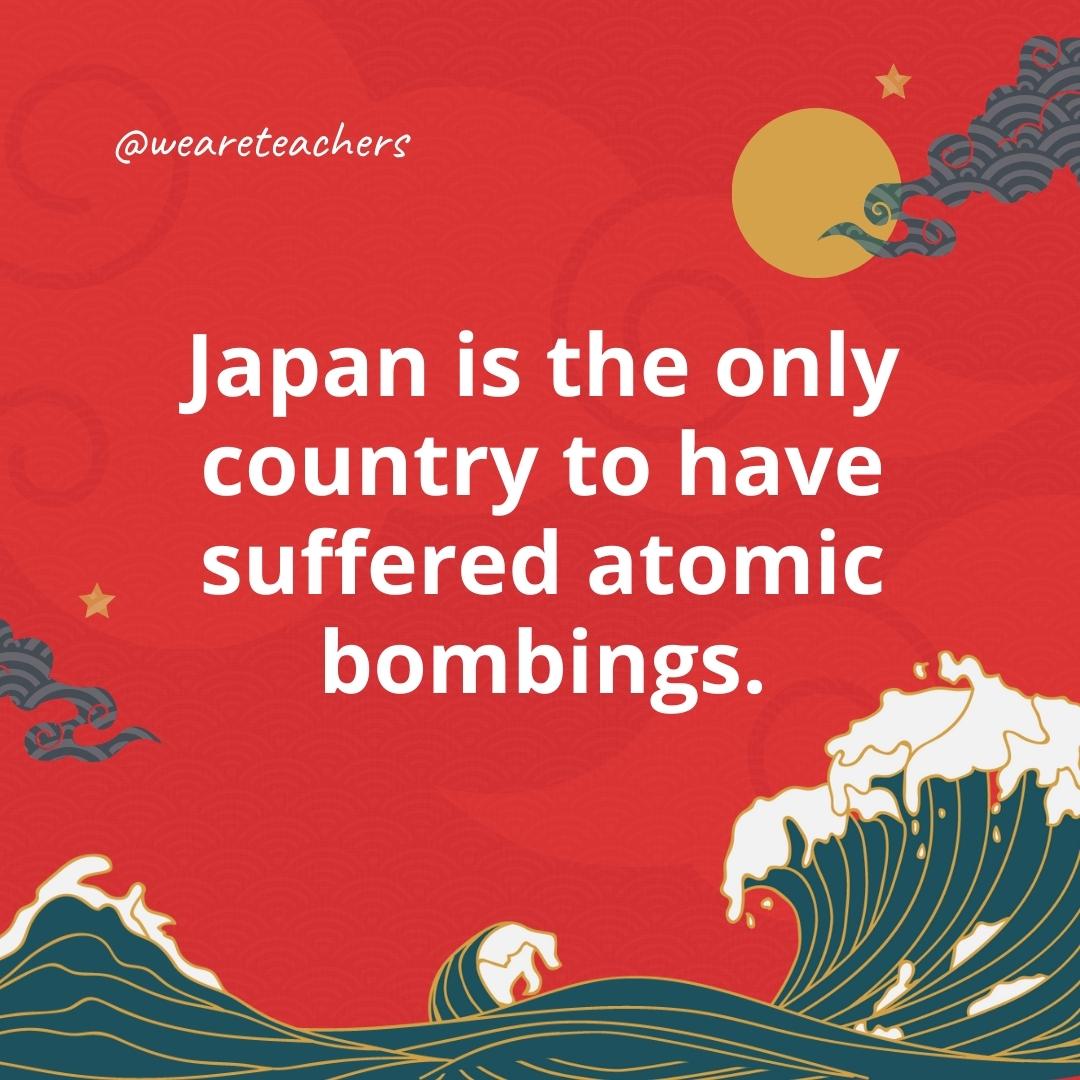
According to the International Campaign to Abolish Nuclear Weapons, “In the final days of World War II, the United States detonated two atomic bombs over the Japanese cities of Hiroshima and Nagasaki, killing a quarter of a million people instantly or within a few months of the attacks.”
Godzilla was conceived as a metaphor for nuclear weapons in Japan.
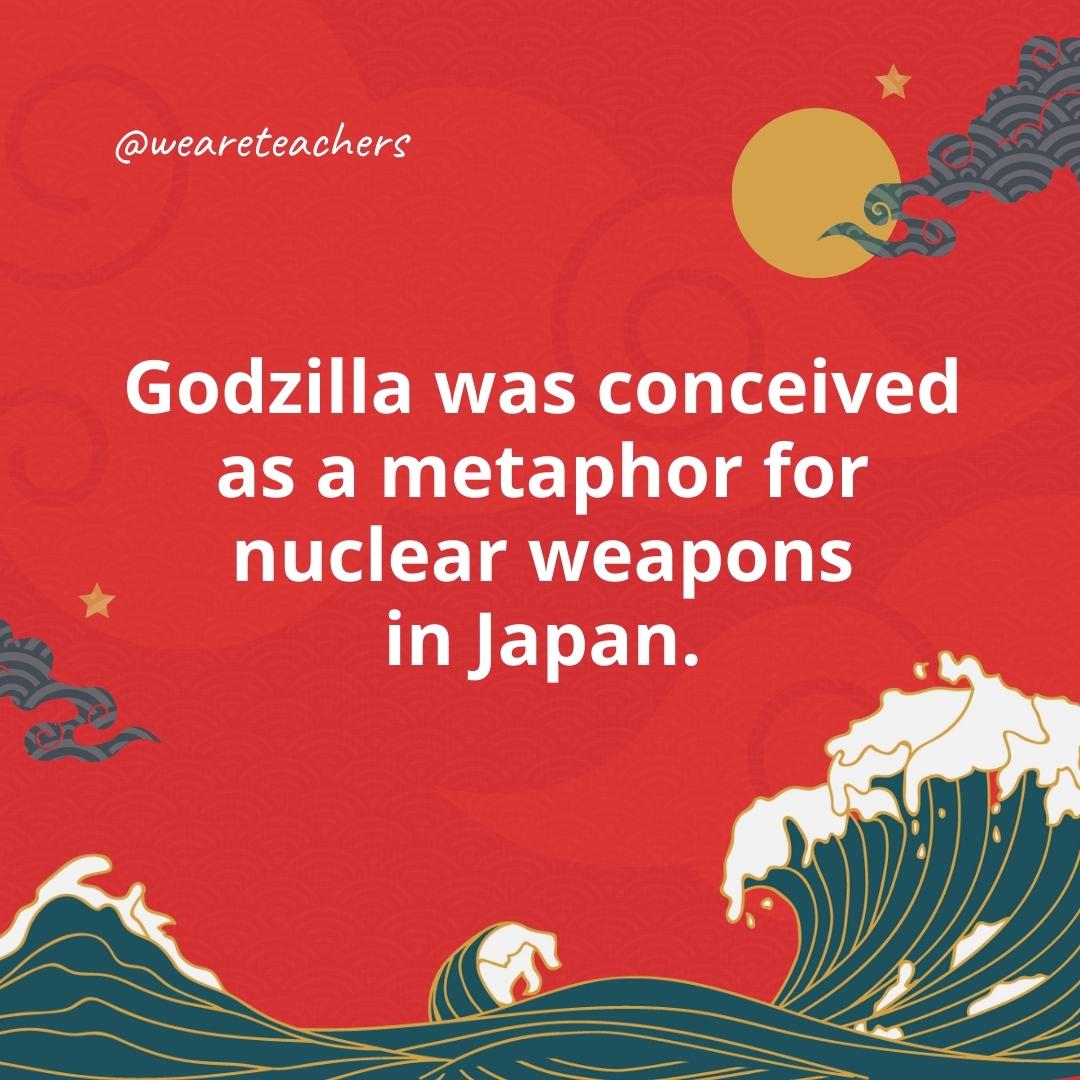
After the nuclear bombings of Hiroshima and Nagasaki, nuclear radiation awakened and empowered the fictional prehistoric reptilian “King of Monsters.”
Trains in Japan are among the most punctual in the world.
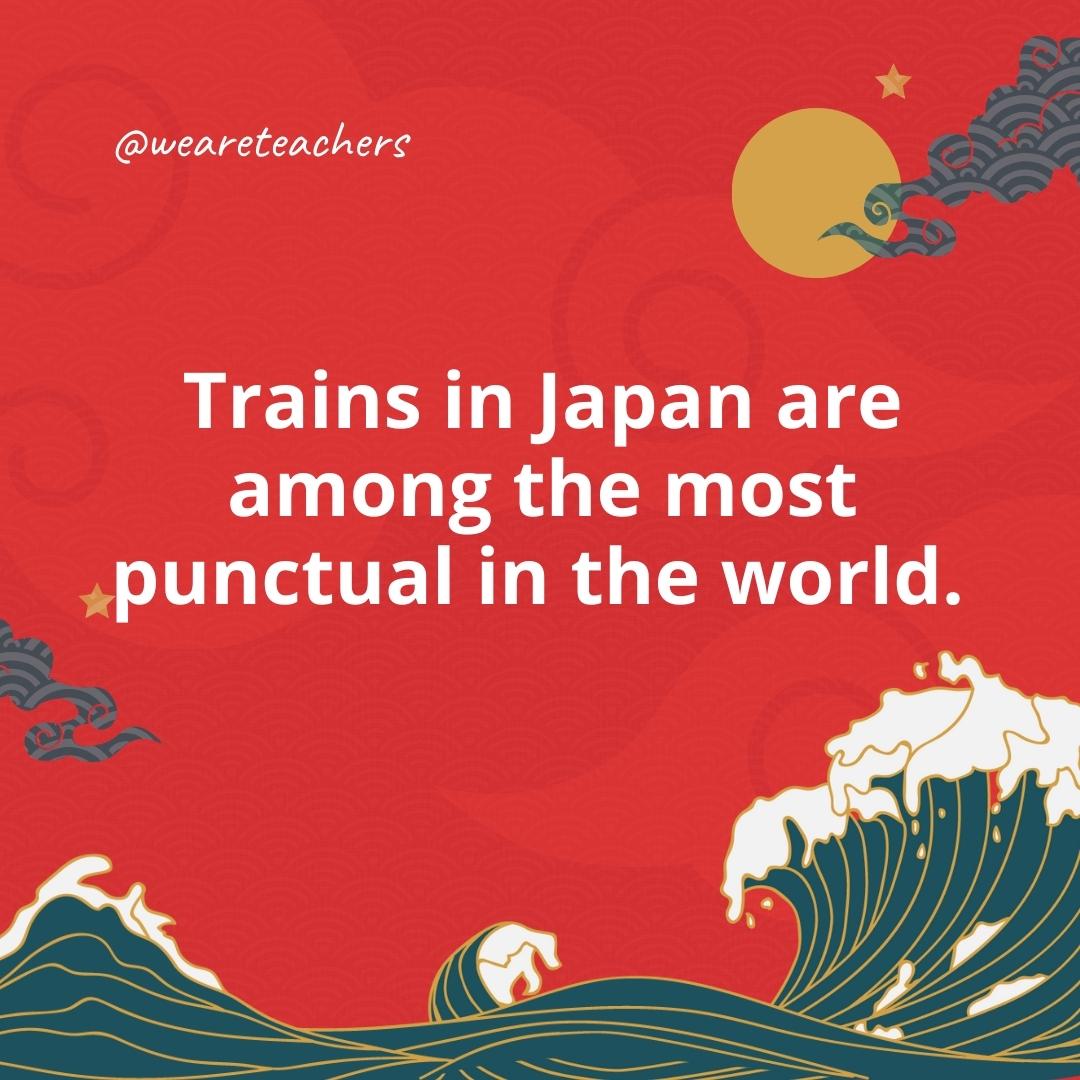
When a train is late, the average delay is just 18 seconds! They’ve even issued public apologies for a train that departed 25 seconds early.
The Sapporo Snow Festival is a popular winter event in Japan.
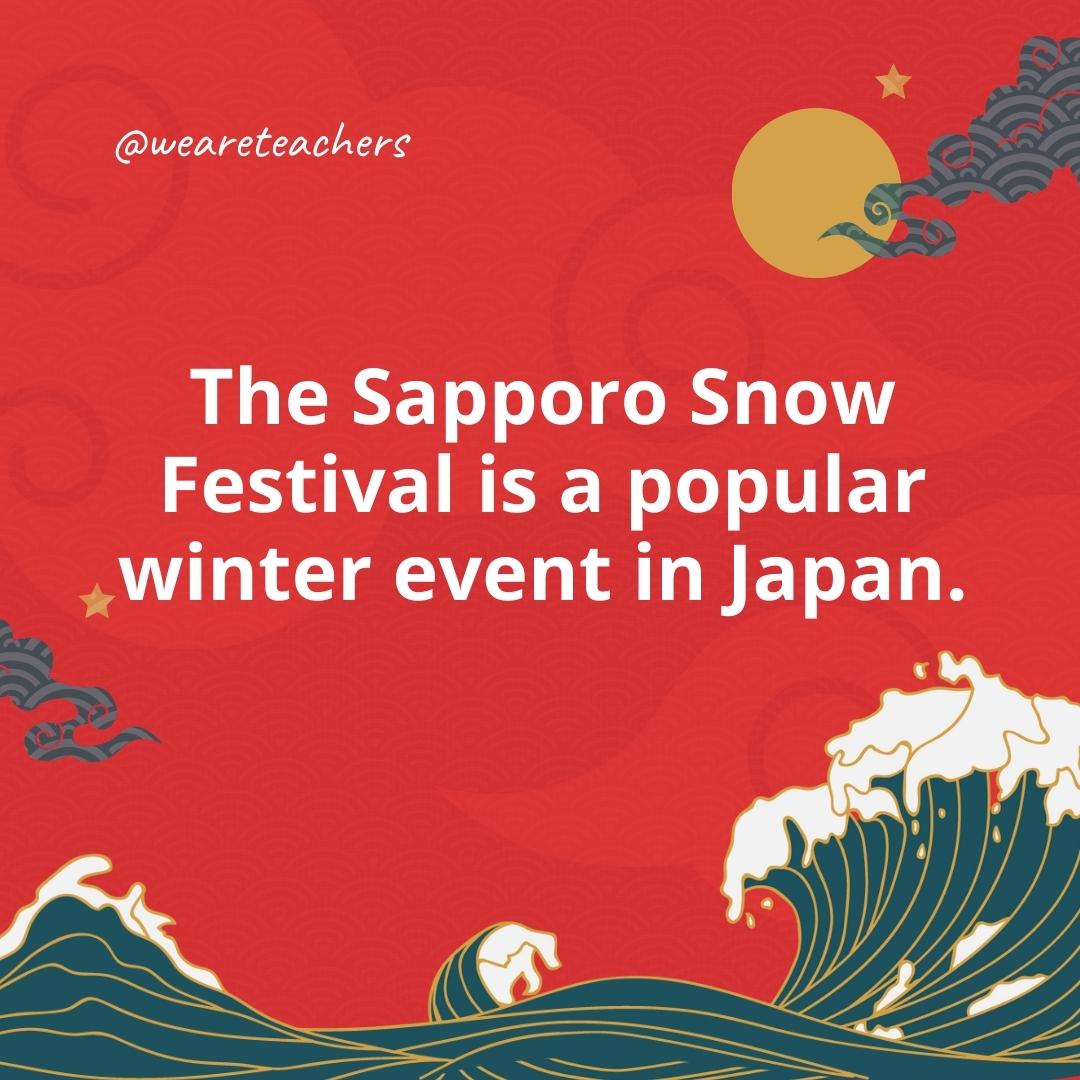
It takes place in the northern prefecture of Hokkaido and features massive and elaborate snow and ice sculptures.
An International UFO Lab opened in Japan in 2021.

The UFO Lab opened on June 24—World UFO Day—and was founded “to collect, analyze and disclose information on sightings of unidentified flying objects around the world.”
There are about 4 million vending machines in Japan.
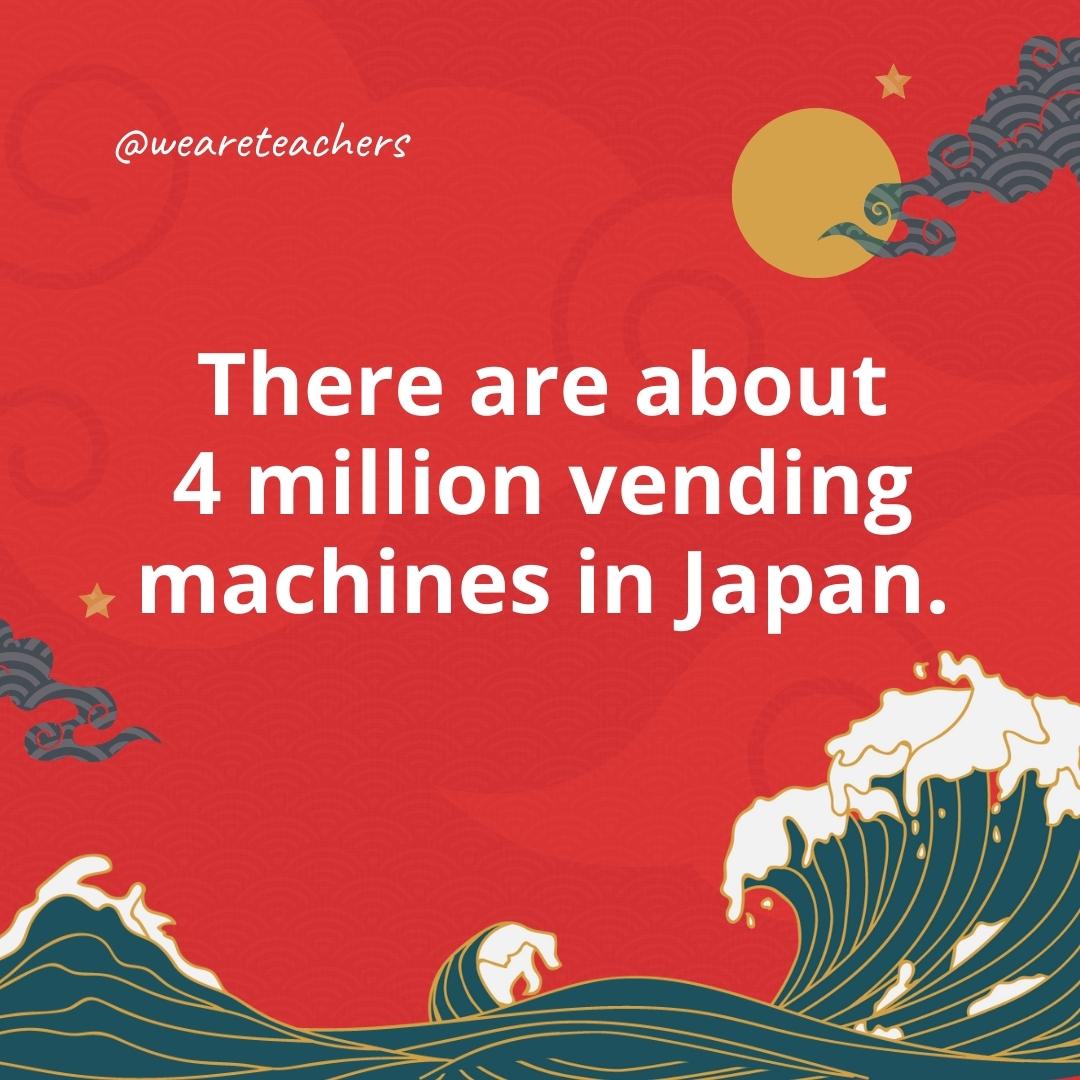
Every day, people in Japan use them to get everything from hot tea and coffee to popcorn and ramen.
Japan is one of the safest countries on Earth.
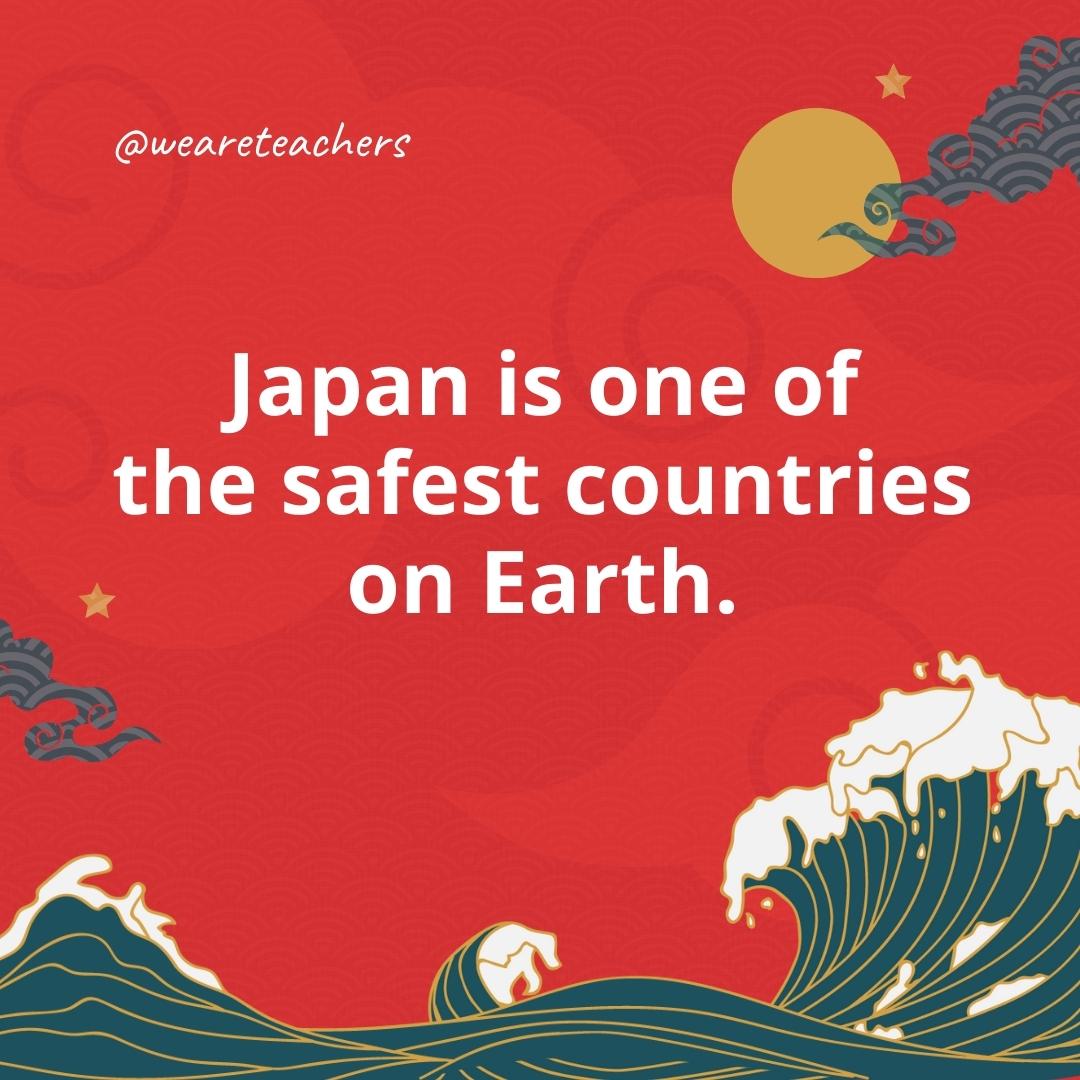
Even Tokyo and Osaka, its two best-known cities, rank at the top of the list of safest cities in the world.
If you enjoyed learning these facts about Japan, check out our 45 Fascinating Facts About Mexico!
And be sure to subscribe to our newsletters for more fun and informative articles.

